Saturday, March 21 2020
 And intriguing premise inspires me to buy the book and start reading, but what draws me in to the story and keeps me there is the cast of characters. If the reader can’t make me care if the protagonist succeeds and how they feel about what’s happening, then I lose interest quickly and put the book aside. And intriguing premise inspires me to buy the book and start reading, but what draws me in to the story and keeps me there is the cast of characters. If the reader can’t make me care if the protagonist succeeds and how they feel about what’s happening, then I lose interest quickly and put the book aside.
XX
 I think compelling characters are the core of a good story. I’ll admit there are some exceptions to this, but aren’t there always? I still read Lee Child’s stories even though there is nothing Jack Reacher wants more than to move on to the next town and we see very little emotion and no growth in his character. He does have a moral code most of us can relate to, so of course we want him to overcome and perhaps that’s what keeps us reading in spite of his lack of emotion, goals and dreams. But the stories that stay with me are the ones with deep point of view characters who have strengths and weakness, goals, desires, wounds and all those things that make us human. I think compelling characters are the core of a good story. I’ll admit there are some exceptions to this, but aren’t there always? I still read Lee Child’s stories even though there is nothing Jack Reacher wants more than to move on to the next town and we see very little emotion and no growth in his character. He does have a moral code most of us can relate to, so of course we want him to overcome and perhaps that’s what keeps us reading in spite of his lack of emotion, goals and dreams. But the stories that stay with me are the ones with deep point of view characters who have strengths and weakness, goals, desires, wounds and all those things that make us human.
XX
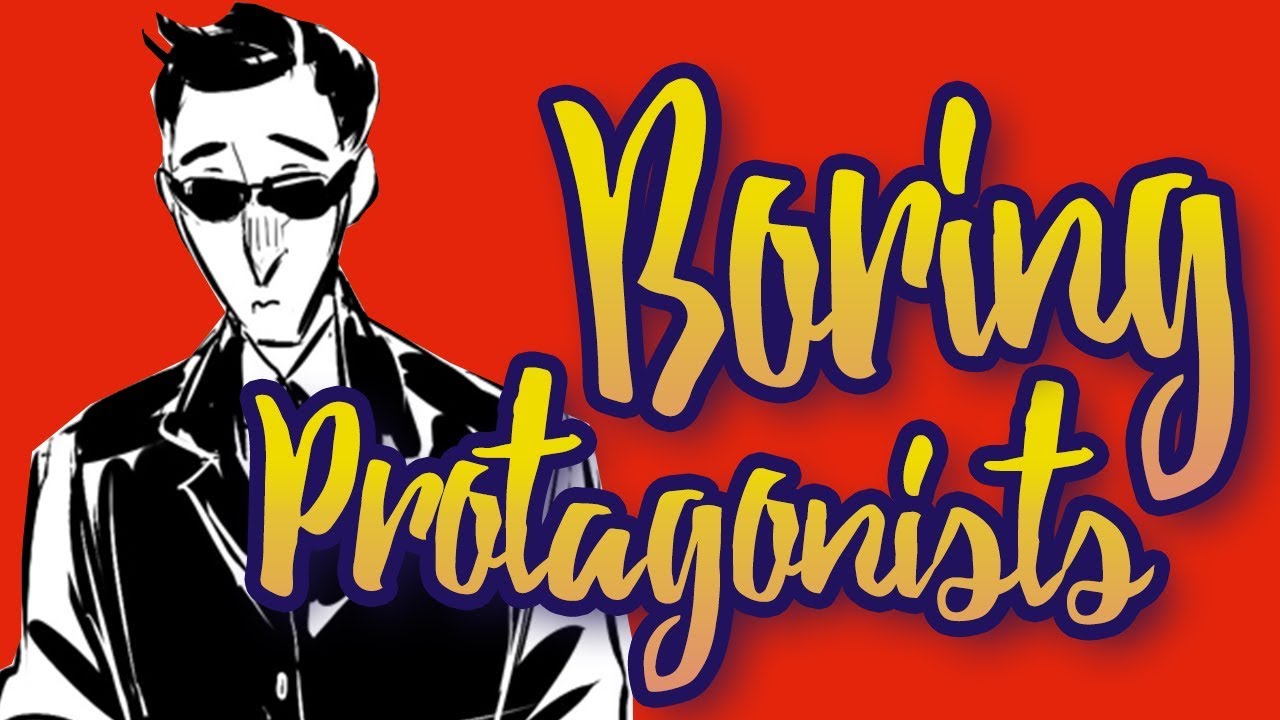 I once critiqued a book, one of a series several books long, but the only reason I stuck with it was because of that commitment to critique it. The so-called heroine was faced with one horror after another, her counterpart/husband likewise, but not at her side. They coped, but never seemed to “feel” anything. It was just one bad thing to get through after another with no grieving, no sense loss or triumph, no growth. The only character that held some promise was the villain’s henchman who had a glimmer of a conscience and I kept thinking he was going to change, but in the end, he caved to the demands of his boss and stopped thinking about the evil he was into. A huge disappointment to me. Nothing could have dragged me into the next book, not even a willingness to help another author. I once critiqued a book, one of a series several books long, but the only reason I stuck with it was because of that commitment to critique it. The so-called heroine was faced with one horror after another, her counterpart/husband likewise, but not at her side. They coped, but never seemed to “feel” anything. It was just one bad thing to get through after another with no grieving, no sense loss or triumph, no growth. The only character that held some promise was the villain’s henchman who had a glimmer of a conscience and I kept thinking he was going to change, but in the end, he caved to the demands of his boss and stopped thinking about the evil he was into. A huge disappointment to me. Nothing could have dragged me into the next book, not even a willingness to help another author.
XX
 I am currently reading another book with a very intriguing premise and variety of interesting characters who hold a great deal of promise, but the heroine is attacked at the start of the book by a psychiatric patient who carves his initial into her face to mark her as his. She escapes and eventually returns to the home she grew up in to recuperate. Everyone around her worries about how she will react when she sees the S carved into her cheek when the bandages come off. Then abruptly about two thirds of the way through the book, another point of view character mentions that the bandages have been left off and the wound is still raw and looks painful. But there is nothing in his point of view about his feelings and we never saw her feelings. We never even saw her remove the bandages and get her first look at the ravages of her face. How could she NOT be affected? Why do we never get to “feel” what she feels when she sees it? Why do those around her who have worried about her reaction not even wince when they see the scar? I feel like the author let me down here by hinting at her feelings but then not following through. I am currently reading another book with a very intriguing premise and variety of interesting characters who hold a great deal of promise, but the heroine is attacked at the start of the book by a psychiatric patient who carves his initial into her face to mark her as his. She escapes and eventually returns to the home she grew up in to recuperate. Everyone around her worries about how she will react when she sees the S carved into her cheek when the bandages come off. Then abruptly about two thirds of the way through the book, another point of view character mentions that the bandages have been left off and the wound is still raw and looks painful. But there is nothing in his point of view about his feelings and we never saw her feelings. We never even saw her remove the bandages and get her first look at the ravages of her face. How could she NOT be affected? Why do we never get to “feel” what she feels when she sees it? Why do those around her who have worried about her reaction not even wince when they see the scar? I feel like the author let me down here by hinting at her feelings but then not following through.
XX
 So, I guess what I’m trying to say is that I want to be swept into the story and made to feel what the characters are feeling. If they are afraid, I want to be afraid. If they are grieving, I want to be grieving. If they fall in love, I want to feel that wonderful feeling too. When they are about to make a horrible choice, I want to hear myself saying “NO! Don’t do it!” I want the author to make me hold my breath as the train comes roaring down the track and my heroine is struggling to remove the rope that ties her to the rail. That’s very cliché, I know, but I was listening to an action/adventure story on audio once while I was on my way to a meeting. I pulled into the parking lot, grabbed my gear and dashed to the meeting as if I were late and everyone was just waiting on me, only to find the room nearly empty and me early (for a change.) As I stood there, my heart still pounding and the adrenalin beginning to wear off, I realized that feeling of urgency had been in the book I was listening to, not the situation I was actually in personally. That’s the kind of writing that pulls me into a book and keeps me there. I was the one being hunted down by a hit-man while trying to complete the mission I’d been given. So, I guess what I’m trying to say is that I want to be swept into the story and made to feel what the characters are feeling. If they are afraid, I want to be afraid. If they are grieving, I want to be grieving. If they fall in love, I want to feel that wonderful feeling too. When they are about to make a horrible choice, I want to hear myself saying “NO! Don’t do it!” I want the author to make me hold my breath as the train comes roaring down the track and my heroine is struggling to remove the rope that ties her to the rail. That’s very cliché, I know, but I was listening to an action/adventure story on audio once while I was on my way to a meeting. I pulled into the parking lot, grabbed my gear and dashed to the meeting as if I were late and everyone was just waiting on me, only to find the room nearly empty and me early (for a change.) As I stood there, my heart still pounding and the adrenalin beginning to wear off, I realized that feeling of urgency had been in the book I was listening to, not the situation I was actually in personally. That’s the kind of writing that pulls me into a book and keeps me there. I was the one being hunted down by a hit-man while trying to complete the mission I’d been given.
XX
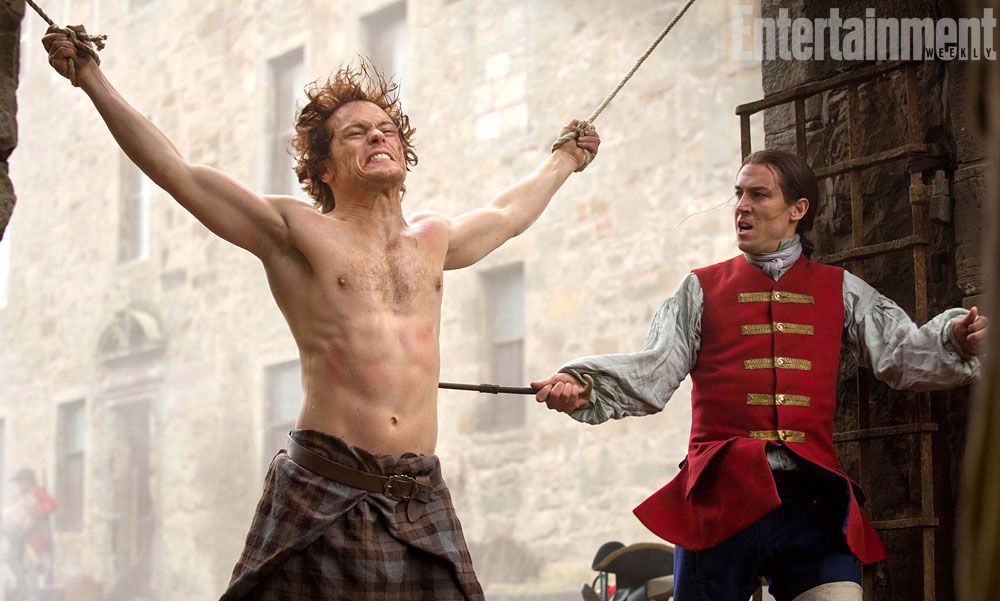 Long before Outlander became all the rage on Starz and Sam Heughan became Jamie Fraser to the fans of the series, I read the books and was drawn right into the lives of Jamie and Clair, Murtagh, Jennie, Ian and the rest of the clan. I might not have actually felt the lashes on Jamie’s back as he was whipped, but I felt the anguish in his soul. I felt the tears on Clair’s face – or maybe they were on mine. I “felt” them falling in love, experienced the frustration and horror Clair experienced as she adjusted to a time very unlike her own, and began to understand the sense of obligation Jamie felt to his Long before Outlander became all the rage on Starz and Sam Heughan became Jamie Fraser to the fans of the series, I read the books and was drawn right into the lives of Jamie and Clair, Murtagh, Jennie, Ian and the rest of the clan. I might not have actually felt the lashes on Jamie’s back as he was whipped, but I felt the anguish in his soul. I felt the tears on Clair’s face – or maybe they were on mine. I “felt” them falling in love, experienced the frustration and horror Clair experienced as she adjusted to a time very unlike her own, and began to understand the sense of obligation Jamie felt to his  clan. That’s the kind of thing that draws me into a book. As a child, Johanna Spyri made me want desperately to “BE” Heidi. I just knew that mountain was where life was great. I wanted to spend my days with Peter and my nights with The Grandfather, because Spyri drew me into Heidi’s head and heart, showing me her fears and loves and experiencing her struggles and her triumphs. clan. That’s the kind of thing that draws me into a book. As a child, Johanna Spyri made me want desperately to “BE” Heidi. I just knew that mountain was where life was great. I wanted to spend my days with Peter and my nights with The Grandfather, because Spyri drew me into Heidi’s head and heart, showing me her fears and loves and experiencing her struggles and her triumphs.
XX
Outside of the author using deep point of view and pulling me into the lives of her characters, letting me experience the story rather than just them telling it, often it’s the kind of characters who people a story. The types of characters that appeal to me are not the Adonises that appear on the covers of romances, but the men who have morals and courage, yet have broken, hurting pieces, doubts, fears and justifiable needs to succeed. The same goes for female characters. I don’t need them to be gorgeous or sexier than anyone I’ve ever met. But I do need them not to be wimpy, subservient, watering pots. I want them to have their flaws, of course, but also a sense of who they are as individuals, what they want and how much they are willing to sacrifice to get it. One reason I never read books about billionaires is because I don’t find money and wealth compelling. I want to relate to the characters and I can’t relate to someone so out of my league that I can’t imagine their lifestyle no matter how well the author describes it.
XX
 I have never personally been in the military, but I can relate to the sense of purpose and a calling to serve that a soldier, sailor, airman or Marine feels, so reading stories of men and women who serve in uniform appeals to be because it could be me. The single mom who struggles to make a life for her kids and still have one herself is relatable because I’ve been there, done that. The anguish of a man who did his best to be a good husband and father and ends up with nothing when his wife I have never personally been in the military, but I can relate to the sense of purpose and a calling to serve that a soldier, sailor, airman or Marine feels, so reading stories of men and women who serve in uniform appeals to be because it could be me. The single mom who struggles to make a life for her kids and still have one herself is relatable because I’ve been there, done that. The anguish of a man who did his best to be a good husband and father and ends up with nothing when his wife  divorces him, the man or woman who had a dream to start their own business and struggles against all kinds of odds, the lonely older person, with their family scattered, the beat cop who sees the worst of the worst and still hangs on to his or her ideals – these are all characters I can relate to. These are the kinds of men and women who keep me turning pages, cheering them on, crying over their heartbreaks, wanting to hug them and offer solace when things are tough, and then finding a thoroughly satisfying ending when they succeed in the end. I want to meet characters in every book that leave me feeling like my best friends just moved far away when the book ends. MAKE ME CARE! divorces him, the man or woman who had a dream to start their own business and struggles against all kinds of odds, the lonely older person, with their family scattered, the beat cop who sees the worst of the worst and still hangs on to his or her ideals – these are all characters I can relate to. These are the kinds of men and women who keep me turning pages, cheering them on, crying over their heartbreaks, wanting to hug them and offer solace when things are tough, and then finding a thoroughly satisfying ending when they succeed in the end. I want to meet characters in every book that leave me feeling like my best friends just moved far away when the book ends. MAKE ME CARE!
XX
 Now you know what grabs me in a book, check out what appeals to these authors: Now you know what grabs me in a book, check out what appeals to these authors:
XX
Victoria Chatham
Helena Fairfax
Judith Copek
Diane Bator
Dr. Bob Rich
Fiona McGier
Rhobin L Courtright
Connie Vines
Saturday, February 22 2020
 Current trends that might or have already end up in a story or another take: How should fiction set in today’s times treat politics? Current trends that might or have already end up in a story or another take: How should fiction set in today’s times treat politics?
XX
This month’s topic is a tough one, for a variety of reasons. Let’s take the last question first. Personally, unless you are writing non-fiction and essays aimed at informing people about current realities, I think it’s smarter to stay out of politics. At least the specific and often radical viewpoints. We no longer live in a society where civil debate is possible.  Take a stand and you are immediately demonized by those who disagree. No matter which side you’re on, a writer is bound to alienate half their readership by supporting or denying a current political reality. For instance, take a romance with a heroine who is adamantly pro-Trump, there are going to be huge numbers of women (the bulk of romance readership) who hate the heroine right from the start and aren’t likely to have any sympathy for whatever her conflict is. Portray a hero who thinks Ocasio-Cortez should be running for president and the push-back from the other side will be equally devastating. Take a stand and you are immediately demonized by those who disagree. No matter which side you’re on, a writer is bound to alienate half their readership by supporting or denying a current political reality. For instance, take a romance with a heroine who is adamantly pro-Trump, there are going to be huge numbers of women (the bulk of romance readership) who hate the heroine right from the start and aren’t likely to have any sympathy for whatever her conflict is. Portray a hero who thinks Ocasio-Cortez should be running for president and the push-back from the other side will be equally devastating.
XX
 I happen to be interested in history and everything I’ve read informs me that socialism in all its manifestations has ruined every society and government that has embraced it, yet far too many people today know nothing of history and don’t care to learn, so the promises of increasingly left-leaning socialist candidates seem perfectly logical, humane and acceptable. There is no middle ground anymore and moderates are ignored or shouted down. Should an author include this current political trend in a novel, they’d have to take a side, and again, either way, they’d manage to alienate many of their readers. Best-selling author Suzanne Brockmann wrote a series I happen to be interested in history and everything I’ve read informs me that socialism in all its manifestations has ruined every society and government that has embraced it, yet far too many people today know nothing of history and don’t care to learn, so the promises of increasingly left-leaning socialist candidates seem perfectly logical, humane and acceptable. There is no middle ground anymore and moderates are ignored or shouted down. Should an author include this current political trend in a novel, they’d have to take a side, and again, either way, they’d manage to alienate many of their readers. Best-selling author Suzanne Brockmann wrote a series  listed as romantic suspense that has a wonderful cast of characters, one of which happens to be gay. He was a delightful secondary character that most readers enjoyed having in the story. But then Ms. Brockmann began using her series as a platform to promote the gay lifestyle and the books began to feature love stories between gay men and include more graphic depictions of gay love. Many romance readers were turned off by that alone. Other readers were turned off by her using her best-selling series and status to promote an agenda they did not support or believe in. Given her millions of books sold and supported by a well-known publishing house, all those lost fans probably don’t worry her at all, but the same reactions could seriously impact a fledgling or struggling author. listed as romantic suspense that has a wonderful cast of characters, one of which happens to be gay. He was a delightful secondary character that most readers enjoyed having in the story. But then Ms. Brockmann began using her series as a platform to promote the gay lifestyle and the books began to feature love stories between gay men and include more graphic depictions of gay love. Many romance readers were turned off by that alone. Other readers were turned off by her using her best-selling series and status to promote an agenda they did not support or believe in. Given her millions of books sold and supported by a well-known publishing house, all those lost fans probably don’t worry her at all, but the same reactions could seriously impact a fledgling or struggling author.
XX
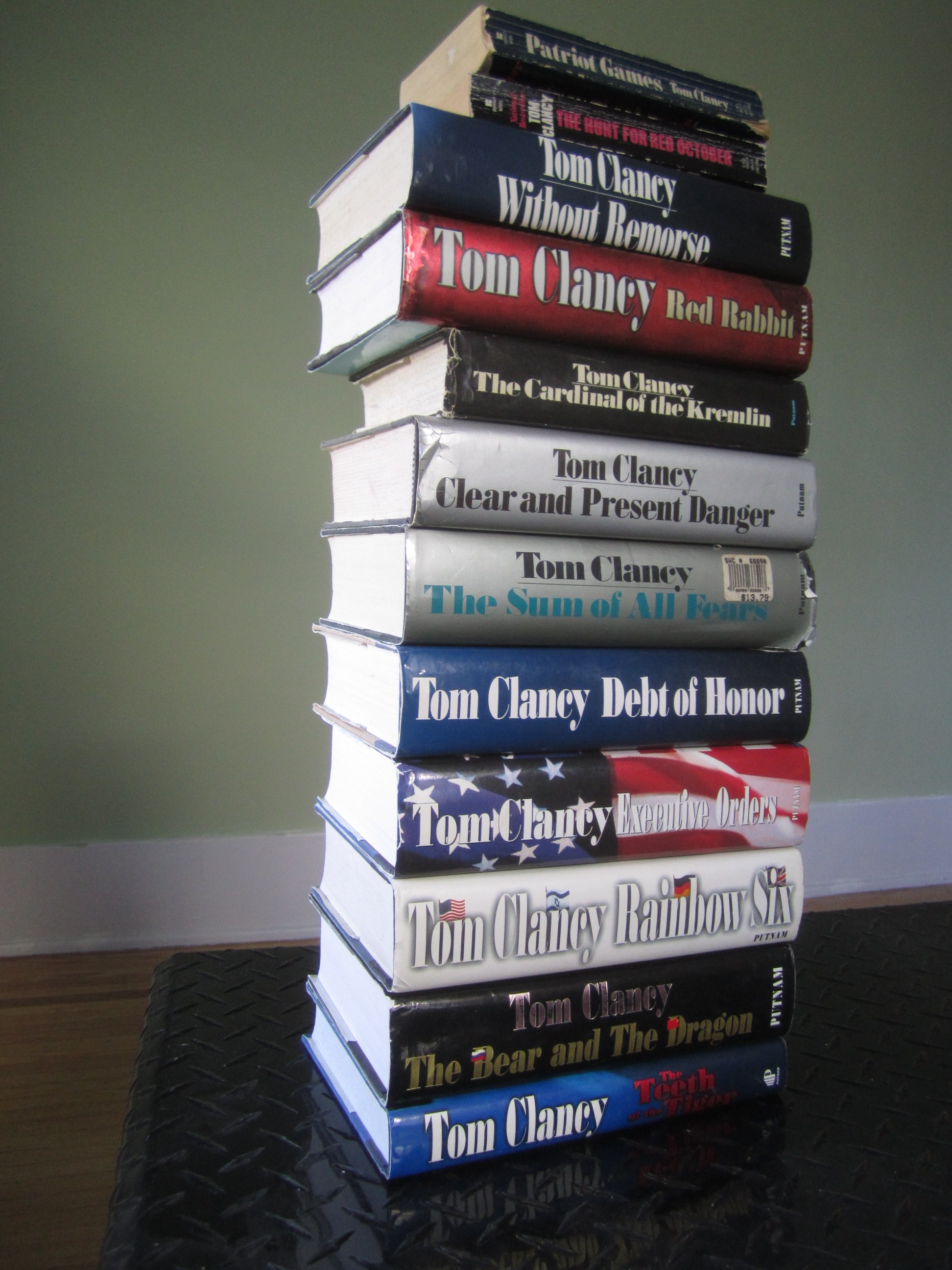 Some genre’s might not be such fertile ground for dissention. If you’re writing an international thriller, and your hero is a well-trained operative going after what most of us consider a terrorist the reader is more than likely to be on his side from page one. Sci-fi and paranormal are already outside the realm of reality and young adult is mostly focused on the issues of coming of age teens and twenty-somethings, so perhaps none of those get close enough to the issues that inflame. Historical fiction is totally unbound by current trends except where an author needs to skim over realities that would offend today’s sensibilities. And then there are niche genres: military, law enforcement, etc., that already have the dedicated support of those who read that kind of story, and have no issues with the stand taken. Some genre’s might not be such fertile ground for dissention. If you’re writing an international thriller, and your hero is a well-trained operative going after what most of us consider a terrorist the reader is more than likely to be on his side from page one. Sci-fi and paranormal are already outside the realm of reality and young adult is mostly focused on the issues of coming of age teens and twenty-somethings, so perhaps none of those get close enough to the issues that inflame. Historical fiction is totally unbound by current trends except where an author needs to skim over realities that would offend today’s sensibilities. And then there are niche genres: military, law enforcement, etc., that already have the dedicated support of those who read that kind of story, and have no issues with the stand taken.
XX
So, now to discuss the first part of this month’s topic: Current trends. The biggest problem with any current trend is just that it is current. Meaning before long it will not be current. Is the trend the major source of conflict in the story? Will it even be relevant in a year or two or ten? Should a writer consider how long their book will be timely? Will the story still be compelling when trend changes? Perhaps we all grow up thinking the world we know is more or less the way it always was before us and is unlikely to change, but just think about the difference in childhood alone.
XX
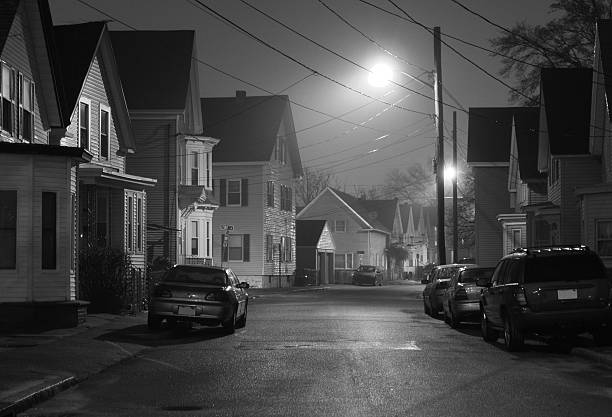 I’m old enough to remember leaving my house on a Saturday morning to explore any adventure that came my way, getting a PB&J from someone else’s mom, and not showing up at my own house again until the street lights came on. Mothers of today’s kids would be horrified by the idea. My mom would have been nonplussed by the trend of moms working unless they were teachers or nurses and even that was after their kids were school age. Today’s young mothers can’t conceive of staying home and interrupting their careers. Day care has become a norm and often its someone besides mom who feeds a child their first Cheerio or watches them take their first steps. I doubt the ways of my youth and that of my children will ever return, but what is the landscape going to look like in 10 or 15 years? In the 1960s nearly 95% of children were born to married couples. Today 40% are born to unmarried mothers. Perhaps the commitment of marriage will become a thing of the past as well. I’m old enough to remember leaving my house on a Saturday morning to explore any adventure that came my way, getting a PB&J from someone else’s mom, and not showing up at my own house again until the street lights came on. Mothers of today’s kids would be horrified by the idea. My mom would have been nonplussed by the trend of moms working unless they were teachers or nurses and even that was after their kids were school age. Today’s young mothers can’t conceive of staying home and interrupting their careers. Day care has become a norm and often its someone besides mom who feeds a child their first Cheerio or watches them take their first steps. I doubt the ways of my youth and that of my children will ever return, but what is the landscape going to look like in 10 or 15 years? In the 1960s nearly 95% of children were born to married couples. Today 40% are born to unmarried mothers. Perhaps the commitment of marriage will become a thing of the past as well.
XX
 Some of today’s trends provide the conflict for the story. Fifty years ago, it would not have been possible to write a successful story with a hero who disrespected law enforcement, nor a heroine soldier often separated from her husband and children by deployments to a war zone, nor a gay couple fostering troubled teens, -- all good themes with strong conflict and hopefully satisfying resolutions. Some of today’s trends provide the conflict for the story. Fifty years ago, it would not have been possible to write a successful story with a hero who disrespected law enforcement, nor a heroine soldier often separated from her husband and children by deployments to a war zone, nor a gay couple fostering troubled teens, -- all good themes with strong conflict and hopefully satisfying resolutions.
XX
 But the hardest trend of all for a writer to overcome are the expectations of instant gratification that our rapidly changing world of technology has fostered. Gone with the Wind and so many other great classics would never have made it to print had they been written today. Everyone carries a mini-computer in their pocket with instant access to just about anything. Television caters to this with constant action, skipping over the slow and boring realities of whatever story they are telling. We have come to expect everything in our lives to happen right now, including being captivated by a story in a book. A writer can’t spend a whole chapter or even a whole page setting the scene. Instead he or she must open with something happening – the inciting incident – and fill in the scene setting details afterward as sparingly as possible without But the hardest trend of all for a writer to overcome are the expectations of instant gratification that our rapidly changing world of technology has fostered. Gone with the Wind and so many other great classics would never have made it to print had they been written today. Everyone carries a mini-computer in their pocket with instant access to just about anything. Television caters to this with constant action, skipping over the slow and boring realities of whatever story they are telling. We have come to expect everything in our lives to happen right now, including being captivated by a story in a book. A writer can’t spend a whole chapter or even a whole page setting the scene. Instead he or she must open with something happening – the inciting incident – and fill in the scene setting details afterward as sparingly as possible without  leaving the reader no anchor for their imagination. Just like with dating – once a careful courting, getting to know one another, culminating in the kiss and then the sex (or originally the wedding first.) Now sex seems to drive the process and shows up at the first meeting. Our stories need to have that same heart-pounding, cliff-hanging intensity right from the first page and don’t let up or give the reader any chance to put the book down in favor of a video game or something on reality TV. leaving the reader no anchor for their imagination. Just like with dating – once a careful courting, getting to know one another, culminating in the kiss and then the sex (or originally the wedding first.) Now sex seems to drive the process and shows up at the first meeting. Our stories need to have that same heart-pounding, cliff-hanging intensity right from the first page and don’t let up or give the reader any chance to put the book down in favor of a video game or something on reality TV.
XX
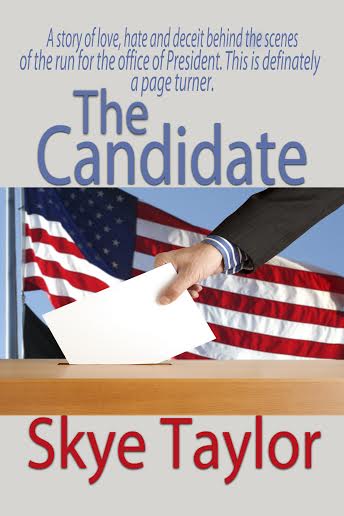 In my own writing, I’ve tried to follow my own advice. Even my political suspense is actually less about politics than it is about one man’s struggle with a personal issue, his own integrity and standing up for what he believes is right. My contemporary romance series is about people. About a family and the interactions. Set against the backdrop of a small coastal town where most people think they’d enjoy living or at least visiting. The issues my law enforcement hero deals with on the job aren’t a statement about current anything, and my heroine coping with PTSD could be anyone dealing with trauma and the impact it has on personal and family life. My new series, murder mysteries, will hopefully continue to avoid divisive issues and just give my readers a In my own writing, I’ve tried to follow my own advice. Even my political suspense is actually less about politics than it is about one man’s struggle with a personal issue, his own integrity and standing up for what he believes is right. My contemporary romance series is about people. About a family and the interactions. Set against the backdrop of a small coastal town where most people think they’d enjoy living or at least visiting. The issues my law enforcement hero deals with on the job aren’t a statement about current anything, and my heroine coping with PTSD could be anyone dealing with trauma and the impact it has on personal and family life. My new series, murder mysteries, will hopefully continue to avoid divisive issues and just give my readers a
XX
Hop on over to see what wisdom these writers offer:
Connie Vines
Dr. Bob Rich
Fiona McGier
Rhobin Courtright
Judith Copek
Saturday, January 25 2020
This month’s Round Robin Blog Hop asks the question: How can contemporary fiction cope with the rapid changes of today’s world?
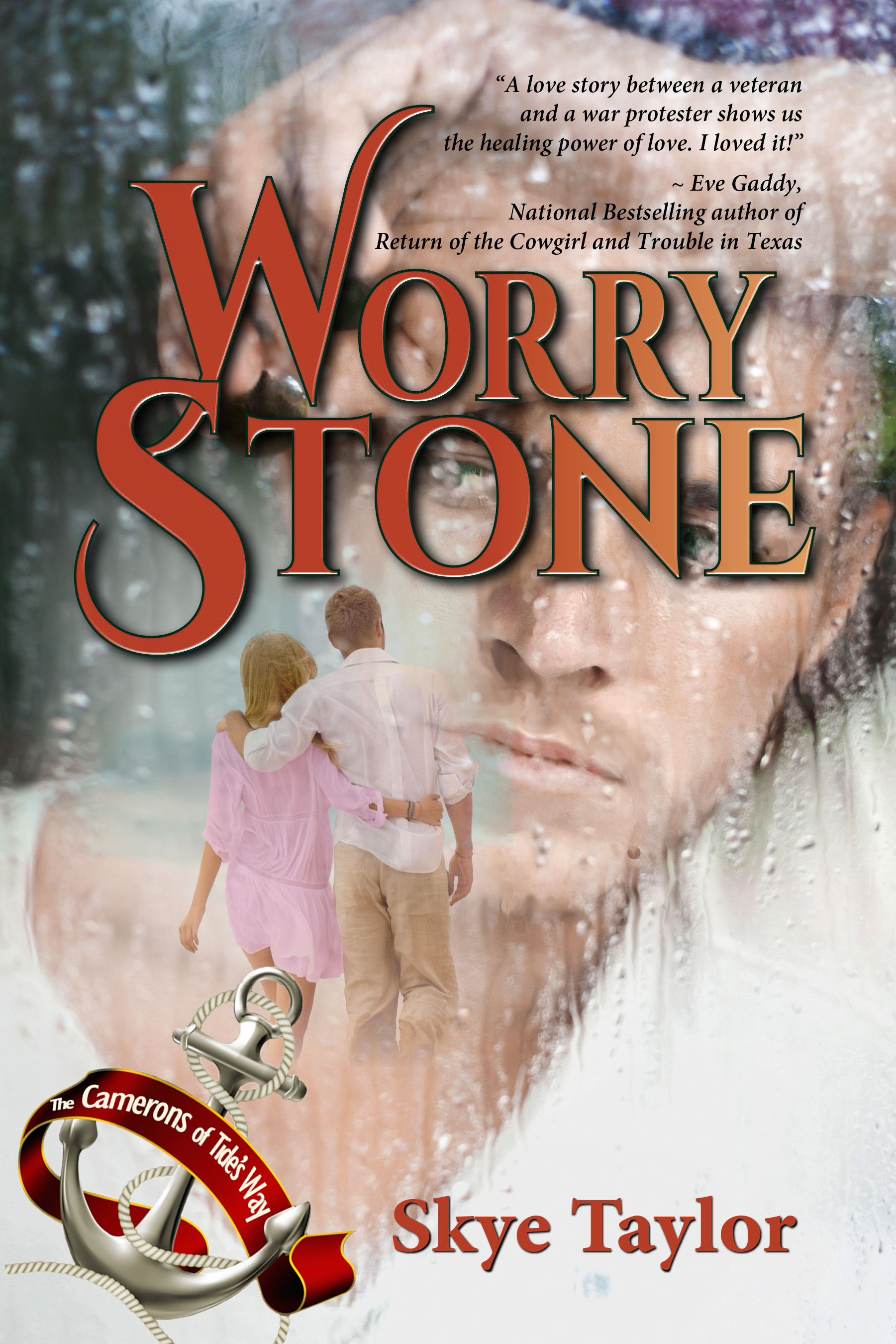 Well, I’m not sure it can. Or should. Some stories are just better told in a setting two years ago, or ten, or twenty. One of my best stories, one that ended up winning silver at the Royal Palm Literary Awards last fall, takes place partly in the present and partly in the the 1970s. I once pitched it to an editor who loved the premise but asked if I could set it during the current overseas wars instead of during the turbulent times of the Vietnam War. While I respect the expertise and experience of good editors and agents, I didn’t for even a Well, I’m not sure it can. Or should. Some stories are just better told in a setting two years ago, or ten, or twenty. One of my best stories, one that ended up winning silver at the Royal Palm Literary Awards last fall, takes place partly in the present and partly in the the 1970s. I once pitched it to an editor who loved the premise but asked if I could set it during the current overseas wars instead of during the turbulent times of the Vietnam War. While I respect the expertise and experience of good editors and agents, I didn’t for even a  heartbeat consider reworking this story because the way our country treated soldiers returning from Vietnam was appallingly different from those coming home after WWII or today’s wars in the Middle East and that aspect was a key conflict for my hero. By changing that time frame, I would have lost much of the story, and lessened the satisfaction of the resolution. So “Keeping Up” with today’s changes would have made it a very different story. heartbeat consider reworking this story because the way our country treated soldiers returning from Vietnam was appallingly different from those coming home after WWII or today’s wars in the Middle East and that aspect was a key conflict for my hero. By changing that time frame, I would have lost much of the story, and lessened the satisfaction of the resolution. So “Keeping Up” with today’s changes would have made it a very different story.
XXX
On the other hand, there can often be a universal theme to a story that fits today, last year, last century or even in the years to come, and all you need to make it current are secondary plots that address today’s issues. That said, however, once you use a current event or theme, you anchor the book in a specific era. Today you might write a romance where the heroine is deeply concerned  about the issue of Global Warming and this drives her goal, motivation and conflict. But will this still be as compelling in twenty years as it is today? Already people are beginning to forget the collective shock and the following patriotism of 9/11. Others are denying the holocaust ever happened. I had a friend recently remark after binge watching old about the issue of Global Warming and this drives her goal, motivation and conflict. But will this still be as compelling in twenty years as it is today? Already people are beginning to forget the collective shock and the following patriotism of 9/11. Others are denying the holocaust ever happened. I had a friend recently remark after binge watching old  black and white TV series while she was recovering from surgery that what hit her was how prevalent cigarette smoking was. Everyone did it. All the time. Everywhere. Today people are just as obsessed with drinking water from plastic bottles bought by the case, so a book where someone filled a glass at the sink would date the story and who knows if this obsession will still be in vogue two years from now when perhaps everyone in the country has a built-in filter systems, much like they have AC today, but didn’t have it as a regular thing 30 years ago. black and white TV series while she was recovering from surgery that what hit her was how prevalent cigarette smoking was. Everyone did it. All the time. Everywhere. Today people are just as obsessed with drinking water from plastic bottles bought by the case, so a book where someone filled a glass at the sink would date the story and who knows if this obsession will still be in vogue two years from now when perhaps everyone in the country has a built-in filter systems, much like they have AC today, but didn’t have it as a regular thing 30 years ago.
XXX
Bottom line for me is there is NO WAY to keep up with the rapid changes in today’s world without permanently linking your story to a specific era – today’s era – which might be very different next year, or even next month. Our world adds something radically new  every day. A cure for cancer might be discovered tomorrow. Cars that drive themselves are cutting edge today but five years from now we might be appalled that anyone actually drives a car that does not have it. I read an essay last month about a guy on a business trip who decided to use only the technology available in 2010, just to see how much had changed in ten years. Among other things, he had to ASK people how to get places and then hope their directions were accurate or easy to follow. No Google Maps. And remember the Blackberry? Or go back a bit further when doctors on call wore pagers? Or 20 volume encyclopedia sets lined a bookshelf in many homes and all libraries. every day. A cure for cancer might be discovered tomorrow. Cars that drive themselves are cutting edge today but five years from now we might be appalled that anyone actually drives a car that does not have it. I read an essay last month about a guy on a business trip who decided to use only the technology available in 2010, just to see how much had changed in ten years. Among other things, he had to ASK people how to get places and then hope their directions were accurate or easy to follow. No Google Maps. And remember the Blackberry? Or go back a bit further when doctors on call wore pagers? Or 20 volume encyclopedia sets lined a bookshelf in many homes and all libraries.
XXX
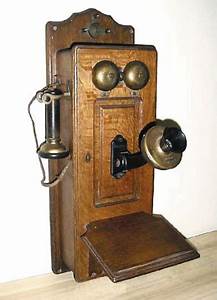 I used to marvel at the incredible changes my grandmother had experienced as her life unfolded. She was born in 1886. Telephones were brand new at the time and radios hadn’t arrived. Nor had automobiles or airplanes. Yet she lived to be 102, well into the age of television, computers and I used to marvel at the incredible changes my grandmother had experienced as her life unfolded. She was born in 1886. Telephones were brand new at the time and radios hadn’t arrived. Nor had automobiles or airplanes. Yet she lived to be 102, well into the age of television, computers and  space travel. Now I think back on my own life, not nearly as long as hers (yet) and I remember my pediatrician making house calls, walking home from school for lunch, kids loose in the back seat of cars on the move, roller skating and biking without helmets, drive-in theaters and so many other things that no longer happen. So, unless you are writing a story with no setting details - and how boring would that be? – then keeping up with our rapidly changing world doesn’t really make a difference in your stories. What’s important is creating characters readers care about and plots that are compelling, whatever era they are set in, with whatever technology is appropriate for the story, against the backdrop of whatever current social world works to help drive the plot and the characters in their quest to reach their goals and find resolution. space travel. Now I think back on my own life, not nearly as long as hers (yet) and I remember my pediatrician making house calls, walking home from school for lunch, kids loose in the back seat of cars on the move, roller skating and biking without helmets, drive-in theaters and so many other things that no longer happen. So, unless you are writing a story with no setting details - and how boring would that be? – then keeping up with our rapidly changing world doesn’t really make a difference in your stories. What’s important is creating characters readers care about and plots that are compelling, whatever era they are set in, with whatever technology is appropriate for the story, against the backdrop of whatever current social world works to help drive the plot and the characters in their quest to reach their goals and find resolution.
XXX
 But maybe some of these other authors have a different take on the question. Perhaps they are addressing the changes in the publishing world which is just as dramatic and different as everything else. So, hop on over and check them out. And, WELCOME TO 2020. But maybe some of these other authors have a different take on the question. Perhaps they are addressing the changes in the publishing world which is just as dramatic and different as everything else. So, hop on over and check them out. And, WELCOME TO 2020.
XXX
Dr. Bob Rich
Helena Fairfax
Connie Vines
Judith Copek
Beverley Bateman
Fiona McGier
Anne Stenhouse
Rhobin L Courtright
Saturday, December 28 2019
 In the year 2000 my friend Cathy and I welcomed the new century and a new millenia in Times Square New York. I like to tell folk I kissed an angel on New Year's Eve in Times Square as the century changed . . . because I sorta did. While we waited for midnight to arrive we watched celebrations in Sydney Australia, Bangkok and Singapore, over the Eiffle Tower and London Bridge and Halifax Nova Scotia and a bunch of places in between on giant screens erected along Broadway. But the man we had befriended, a pilot more used to the climate of Dallas and Buenos Aires, was poorly dressed for a chilly December night in New York City so we found ourselves a subway grate to stand on and stay warm. Then at midnight this fun and fascinating man kissed us both. And his name just happened to be Angel. In the year 2000 my friend Cathy and I welcomed the new century and a new millenia in Times Square New York. I like to tell folk I kissed an angel on New Year's Eve in Times Square as the century changed . . . because I sorta did. While we waited for midnight to arrive we watched celebrations in Sydney Australia, Bangkok and Singapore, over the Eiffle Tower and London Bridge and Halifax Nova Scotia and a bunch of places in between on giant screens erected along Broadway. But the man we had befriended, a pilot more used to the climate of Dallas and Buenos Aires, was poorly dressed for a chilly December night in New York City so we found ourselves a subway grate to stand on and stay warm. Then at midnight this fun and fascinating man kissed us both. And his name just happened to be Angel.
 Two years later the United States Peace Corps sent me to the South Pacific, to a Polynesian Island nation called Tonga. A long way from Times Square and a whole lot warmer. The New Year in Tonga is celebrated with the ringing of church bells and young men making little explosions in the bottoms of the long hollow shoots of Bamboo that could be heard all over the island. As it turns out, I'll be back in Tonga this New Year's Eve, visiting the family that shared their home with me for the two years I served with the Peace Corps. It's hard to believe it's been 20 years since I kissed an Angel in Times Square, or even 18 since I celebrated with my Tongan family, but as you read this blog, I'll be in the air, somewhere over the Pacific, arriving on my little island just in time to welcome the New Year Tongan style again. And I wish you all, my family, friends, fellow bloggers and authors, a wonderful, prosperous and healthy 2020. Two years later the United States Peace Corps sent me to the South Pacific, to a Polynesian Island nation called Tonga. A long way from Times Square and a whole lot warmer. The New Year in Tonga is celebrated with the ringing of church bells and young men making little explosions in the bottoms of the long hollow shoots of Bamboo that could be heard all over the island. As it turns out, I'll be back in Tonga this New Year's Eve, visiting the family that shared their home with me for the two years I served with the Peace Corps. It's hard to believe it's been 20 years since I kissed an Angel in Times Square, or even 18 since I celebrated with my Tongan family, but as you read this blog, I'll be in the air, somewhere over the Pacific, arriving on my little island just in time to welcome the New Year Tongan style again. And I wish you all, my family, friends, fellow bloggers and authors, a wonderful, prosperous and healthy 2020.
And because we are sharing a short story or an excerpt for the December 2019 Blog Hop - here's a Christmas story I wrote that I hope you will enjoy, called Santa's Helper.
 The little girl climbed up into Santa’s lap and carefully smoothed her skirt over her knees. The little girl climbed up into Santa’s lap and carefully smoothed her skirt over her knees.
“I know you aren’t really Santa Claus,” she whispered into Santa’s ear.
Lt. James “Mac” MacAlister leaned back and peered down at the girl from under the bushy white eyebrows someone had stuck on over his own sandy brows. This was not an accusation he’d been prepared for when he signed on to do this gig with the Toys for Tots program.
Mac gave the thin young shoulders a hug and confided, “I’m one of Santa’s elves. Santa Claus can’t be everywhere at once and right now he’s busy at the North Pole. So he sent me to find out what all the good boys and girls wanted him to put on his list.”
“Is that why your suit doesn’t fit so well?”
“What gave me away?” He chuckled in his best Santa imitation.
“You feel like my daddy used to,” she said poking at Mac’s muscular, very unSanta-like belly.
Mac wondered if her father was a fellow Marine, or perhaps just liked to work out. Either way, she made it sound as if the man was no longer with the family.
“What would you like Santa to bring you?” he asked, trying to redirect the conversation.
 “I don’t need anything. Not really . . .” she trailed off wistfully. “But my brother wants one of these.” She pulled a tattered page from a toy catalog out of her pocket and spread it out for him to see. It featured a Tonka Dessert Fox SUV. “He’s still too little, and he doesn’t understand why Daddy can’t come home. And Mommy says Santa Claus isn’t coming to our house this year, either.” “I don’t need anything. Not really . . .” she trailed off wistfully. “But my brother wants one of these.” She pulled a tattered page from a toy catalog out of her pocket and spread it out for him to see. It featured a Tonka Dessert Fox SUV. “He’s still too little, and he doesn’t understand why Daddy can’t come home. And Mommy says Santa Claus isn’t coming to our house this year, either.”
Tears prickled unexpectedly in Mac’s eyes. He blinked them away and gave the little girl another hug. “Surely there must be something you would like?”
 The girl folded the page from the catalog and pressed it into Mac’s hand. “Just the truck for Sammy. Even Santa Claus can’t bring my daddy back in time for my dance recital, and that’s all I wanted. Except maybe—” she paused, then added in a hurried, hushed little voice, “maybe a new pair of ballet shoes.” The girl folded the page from the catalog and pressed it into Mac’s hand. “Just the truck for Sammy. Even Santa Claus can’t bring my daddy back in time for my dance recital, and that’s all I wanted. Except maybe—” she paused, then added in a hurried, hushed little voice, “maybe a new pair of ballet shoes.”
Mac produced two Tootsie Pops from his voluminous pocket. “One for you and one for your brother. And I’ll be sure that Santa Claus gets your message, but I need to know your name so he’ll be sure to deliver the truck to the right house.”
“It’s Maggie,” the girl chirped as she slid off Mac’s lap. “Maggie Reynolds.”
~~~~~
The Dessert Fox SUV was easy. Finding out where Maggie Reynolds lived wasn’t hard either. Discovering the whereabouts and status of Maggie’s father was the challenge. But Mac wasn’t in Intelligence for nothing.
 It turned out that Sergeant Don Reynolds was stationed in the Middle East, seven months into a year-long tour. His wife was pregnant with their third child who was due in less than a month, and money was tight. It turned out that Sergeant Don Reynolds was stationed in the Middle East, seven months into a year-long tour. His wife was pregnant with their third child who was due in less than a month, and money was tight.
Mac did some more recon to discover what Maggie’s mother needed most in the way of assistance. He sent his own Marine elf, aka Sergeant Trisha Burke, out to find the SUV for Sammy and a new car seat for the coming infant. He got another buddy to promise a total overhaul of the family’s aging vehicle and paid a local nursery to deliver a tree to the Reynolds home. Toys for Tots would put a few things under the tree, but there was one other surprise Mac had in the works. He hoped he could pull it off. Perhaps he could change Maggie’s mind about the scope of Santa’s powers.
~~~~~
 Maggie hurried to her spot. She fluffed the spangled tutu and peered over the ruffles to gaze yet again at the brand new ballet shoes that had appeared on her doorstep just that morning. They were exactly the right size, and they had ribbons that matched her tutu perfectly. How had Santa Claus known? Maggie hurried to her spot. She fluffed the spangled tutu and peered over the ruffles to gaze yet again at the brand new ballet shoes that had appeared on her doorstep just that morning. They were exactly the right size, and they had ribbons that matched her tutu perfectly. How had Santa Claus known?
If only Daddy could have seen her dance tonight, then her Christmas would have been the best ever.
As the curtains began to part, the music started. Maggie quickly placed her feet in the correct position and raised her arms into an arch above her head. She lifted her chin, determined to smile and pretend that Daddy was sitting in the front row like he’d promised. The curtains parted, and she pointed her toe to begin the dance.
Then she hesitated. Her heart thumped in her chest, and tears slipped down her cheeks. There, in the front row, holding Mommy’s hand sat a Marine in his best blue uniform clutching an enormous bouquet of pink roses.
XX
Santa Claus had brought Daddy home in time after all. 
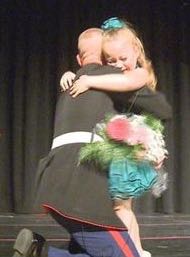
For more Short stories and excerpts - hop on over to these bloggers:
 Victoria Chatham Victoria Chatham
Marci Baun
Dr. Bob Rich
Anne Stenhouse
A.J. Maguire
Fiona McGier
Beverley Bateman
Diane Bator
Rhobin L Courtright
Connie Vines
Saturday, November 23 2019
November's Round Robin Blog asks the question: What is the oddest or most unique character you
have ever dreamed up, and how did they fit into a story?
XXX
 My stories have featured a number of odd characters, many of whom are walk-ons. They don’t appear in the preparation work for character sketches, but suddenly, part way through the book, there they are. And always for a reason. Sometimes for comic relief. Sometimes because your hero or heroine needs a reality check. And most often just because they popped into your head, so vivid and real they just had to be included. My stories have featured a number of odd characters, many of whom are walk-ons. They don’t appear in the preparation work for character sketches, but suddenly, part way through the book, there they are. And always for a reason. Sometimes for comic relief. Sometimes because your hero or heroine needs a reality check. And most often just because they popped into your head, so vivid and real they just had to be included.
XXX
 Not odd in any way, but certainly my most unique character is Kip, a police K-9, grieving for his partner lost in the line of duty. Kip is a German Shepherd with valuable service years behind him, but the trauma of losing his partner has left him unfit for service unless my hero, Ben Cameron, who raises and trains dogs for police work can rehabilitate him. Kip wasn’t in my original outline either, but Ben’s wife, Meg, is a Marine lieutenant, recently returned from service in the Middle East. She came home burdened with guilt over the loss of the shepherd attached to her unit when an IED that she felt she should have suspected before the dog found it exploded. Now the dogs in her husband’s kennel just exacerbate that guilt and the nightmares she suffers. And then there is Kip wandering about the house looking as lost as she feels. Not odd in any way, but certainly my most unique character is Kip, a police K-9, grieving for his partner lost in the line of duty. Kip is a German Shepherd with valuable service years behind him, but the trauma of losing his partner has left him unfit for service unless my hero, Ben Cameron, who raises and trains dogs for police work can rehabilitate him. Kip wasn’t in my original outline either, but Ben’s wife, Meg, is a Marine lieutenant, recently returned from service in the Middle East. She came home burdened with guilt over the loss of the shepherd attached to her unit when an IED that she felt she should have suspected before the dog found it exploded. Now the dogs in her husband’s kennel just exacerbate that guilt and the nightmares she suffers. And then there is Kip wandering about the house looking as lost as she feels.
XXX
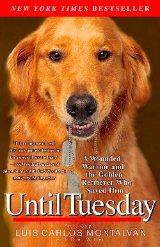 Years ago, I read the book The Things They Carried by Tim O’Brien. It’s a classic piece of literature that gives those who have never gone to war a glimpse into the minds and wounds of those who have, especially the wounds that don’t show, the ones soldiers don’t talk about much. Also, part of my research for Loving Meg took me to another newer classic, Until Tuesday by Luis Carlos Montalván, a warrior so crippled by injury and PTSD that just getting himself to the VA for treatment was a nightmare expedition. Tuesday is the beautiful golden retriever that made his life bearable and inspired him to reach out to help others. Then I checked out a local non-profit that rescues suitable dogs from shelters and retrains them to become service dogs, partly to get more information about these service animals and also because I’ve seen them shepherding their soldiers through the busy tourist downtown where I live on the final days of their training. And suddenly Kip became a part of my story. Years ago, I read the book The Things They Carried by Tim O’Brien. It’s a classic piece of literature that gives those who have never gone to war a glimpse into the minds and wounds of those who have, especially the wounds that don’t show, the ones soldiers don’t talk about much. Also, part of my research for Loving Meg took me to another newer classic, Until Tuesday by Luis Carlos Montalván, a warrior so crippled by injury and PTSD that just getting himself to the VA for treatment was a nightmare expedition. Tuesday is the beautiful golden retriever that made his life bearable and inspired him to reach out to help others. Then I checked out a local non-profit that rescues suitable dogs from shelters and retrains them to become service dogs, partly to get more information about these service animals and also because I’ve seen them shepherding their soldiers through the busy tourist downtown where I live on the final days of their training. And suddenly Kip became a part of my story.
XXX
 Both Meg and Kip were traumatized but Kip recognizes Meg’s issues long before she sees the same sadness in him. He shadows her even when his presence seems to haunt her and eventually, when her dam of isolation bursts, unable to share with her husband the torment she is living with, she wraps her arms about Kip and weeps into his furry, warm body and finds solace. Kip and Meg reappear in a later book in the series, Healing a Hero. My hero in that story isn’t mentally crushed, he’s just frustrated with the healing and rehab of his physical injuries and eager to get back to his unit, but Meg is his sister-in-law and along with Kip she visits vets who are recovering at Camp LeJeune. So we see Meg and Kip as a pair, having helped to heal each other, are now busy helping to heal others. Both Meg and Kip were traumatized but Kip recognizes Meg’s issues long before she sees the same sadness in him. He shadows her even when his presence seems to haunt her and eventually, when her dam of isolation bursts, unable to share with her husband the torment she is living with, she wraps her arms about Kip and weeps into his furry, warm body and finds solace. Kip and Meg reappear in a later book in the series, Healing a Hero. My hero in that story isn’t mentally crushed, he’s just frustrated with the healing and rehab of his physical injuries and eager to get back to his unit, but Meg is his sister-in-law and along with Kip she visits vets who are recovering at Camp LeJeune. So we see Meg and Kip as a pair, having helped to heal each other, are now busy helping to heal others.
XXX
 For those of us who have dogs, we appreciate the incredible bond that can grow between a dog and a human, but for those who’ve never experienced that, it’s probably hard to understand how a service dog can make so much of a difference in the life of someone suffering from anxiety, PTSD, physical disabilities and despair. For me, Kip was a chance to open a window on this marvelous ministry. Kip might walk on four feet, but he’s a character that brought a unique personality to my story about Meg and her struggle to find her way back to the life she’d left behind when she went to war. For those of us who have dogs, we appreciate the incredible bond that can grow between a dog and a human, but for those who’ve never experienced that, it’s probably hard to understand how a service dog can make so much of a difference in the life of someone suffering from anxiety, PTSD, physical disabilities and despair. For me, Kip was a chance to open a window on this marvelous ministry. Kip might walk on four feet, but he’s a character that brought a unique personality to my story about Meg and her struggle to find her way back to the life she’d left behind when she went to war.
XXX
 All the royalties for the book, Loving Meg are donated to K-9s for Warriors to help rescue and train more dogs like Kip and pair them with men and women like Meg in real life. All the royalties for the book, Loving Meg are donated to K-9s for Warriors to help rescue and train more dogs like Kip and pair them with men and women like Meg in real life.

XXX
 Want to meet some more fun, unique, strange or odd characters? Hop on over to these other author's and check them out: Want to meet some more fun, unique, strange or odd characters? Hop on over to these other author's and check them out:
Victoria Chatham
A.J. Maguire
Dr. Bob Rich
Connie Vines
Diane Bator
Beverley Bateman
Fiona McGier
Judith Copek
Robin Courtright http://www.rhobincourtright.com/
Thursday, October 24 2019
 The Royal Palm Literary Awards is a very demanding competition for authors, both published and unpublished. With three rounds of judging, a work moves on only by scoring above a certain threshold rather than just better than the competition. To make semi-finals is very satisfying. To make finalist is exciting. But to walk across the state to receive an award for having placed is very fulfilling. All those hours of writing, editing, research and sweat finally rewarded by three panels of judges from the professional world of judging including librarians, agents and editors. The Royal Palm Literary Awards is a very demanding competition for authors, both published and unpublished. With three rounds of judging, a work moves on only by scoring above a certain threshold rather than just better than the competition. To make semi-finals is very satisfying. To make finalist is exciting. But to walk across the state to receive an award for having placed is very fulfilling. All those hours of writing, editing, research and sweat finally rewarded by three panels of judges from the professional world of judging including librarians, agents and editors.
WORRY STONE is book six in my Contemporary Romance series, The Camerons of Tide's Way. Two years ago, book 4 also took silver in this competition.
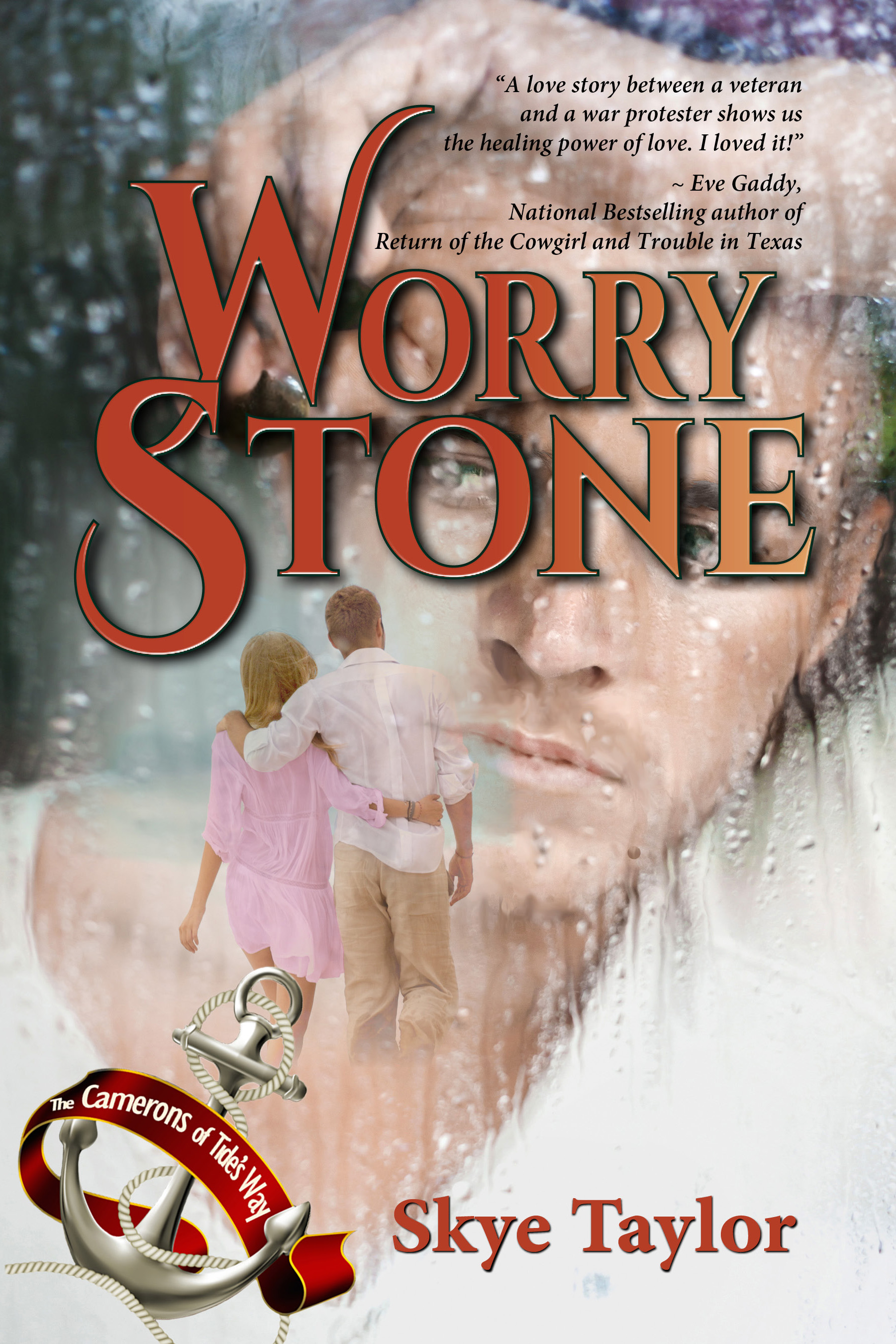 Is love enough to heal a soul-wounded Marine? Is love enough to heal a soul-wounded Marine?
Sandy Marshall has been rescuing and healing injured creatures all her life, so it’s nothing new when she jumps to the defense of a Marine recently returned from a war zone who’s being heckled by a fellow student. But when she falls in love with Nathan Cameron, she discovers that bringing home a soul-wounded Marine just might break her heart.
Cam wasn’t planning on getting involved with anyone until he put the war firmly behind him and got his life back on track, but the hope and sunshine Sandy brings to his troubled heart is as unexpected as it is irresistible.
Will Sandy’s love be enough to bring Cam back from the edge of despair and convince him to get the help he so desperately needs? Is his love for her strong enough for him to pull his life together and be the man she believes in?
Available at: Amazon, B&N, Kobo, and iBook
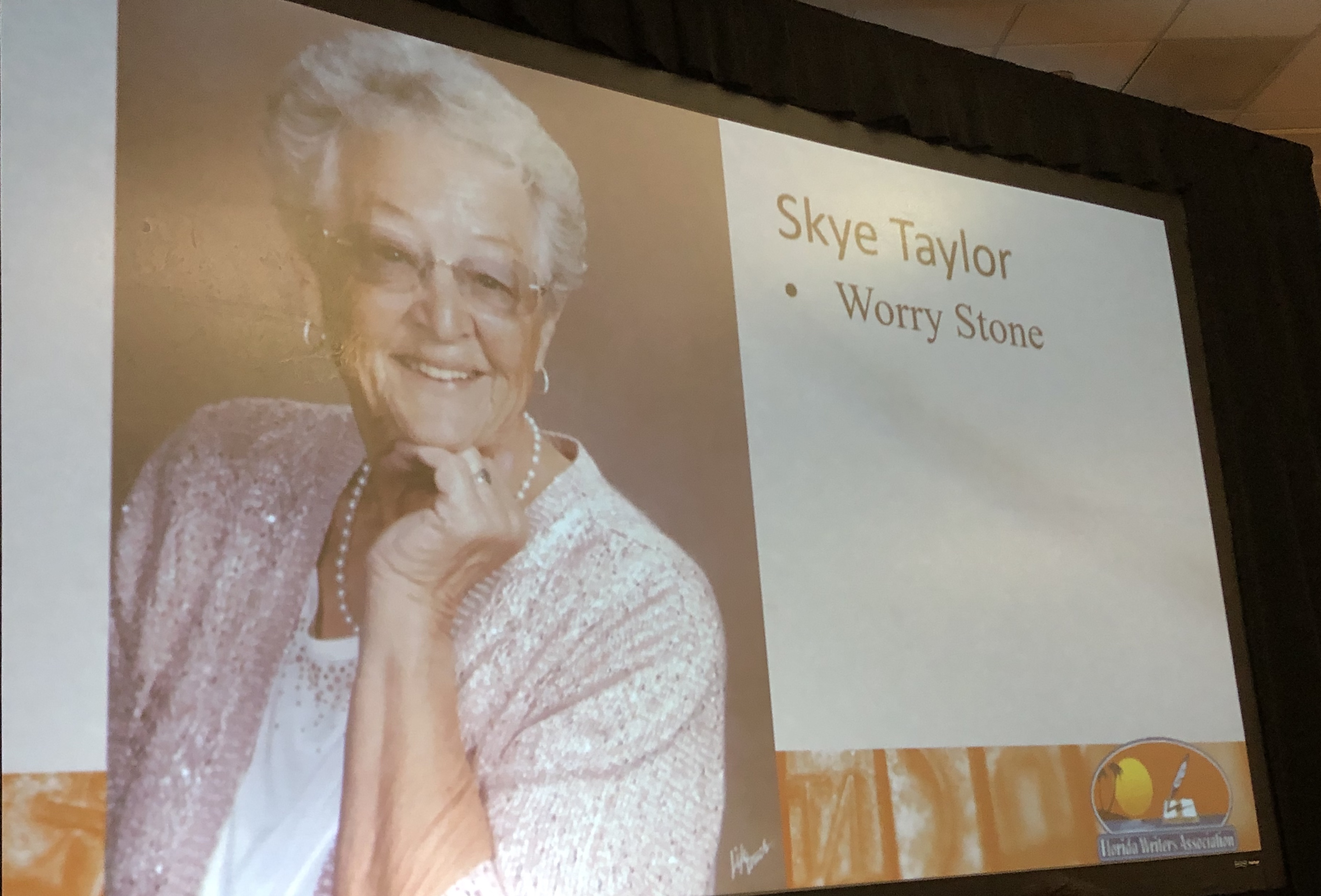
Nothing like seeing your name on the big screen for excitement!!
Saturday, October 19 2019
October Round Robin Blog: What unique situations have occurred in the writing process of any of your novels? Perhaps where what you planned changed, or the direction you thought the story was on deviated or transmuted?
XX
  I’m a pantser - for the initiated, that’s a person who writes by the seat of their pants - which means I never outline and rarely know the path I’m taking to get to an end I do know before I start. When an idea for a story comes to me, it often comes with a very clear image of where and how it will end. In fact, I very often write the final scene or chapter before I even begin the book. But how I’m going to get from point A to point B is mostly driven by the characters I’ve created. My writing process includes creating a detailed dossier on my protagonist, and nearly equal backstories for my supporting cast and the antagonist. Then I open with the inciting incident and let them run with the ball. The characters I’ve created seem to have ideas of their own and I am often surprised by the decisions they make or the actions they take, so sudden changes of direction or things I planned being upended happens most of the time. I’m a pantser - for the initiated, that’s a person who writes by the seat of their pants - which means I never outline and rarely know the path I’m taking to get to an end I do know before I start. When an idea for a story comes to me, it often comes with a very clear image of where and how it will end. In fact, I very often write the final scene or chapter before I even begin the book. But how I’m going to get from point A to point B is mostly driven by the characters I’ve created. My writing process includes creating a detailed dossier on my protagonist, and nearly equal backstories for my supporting cast and the antagonist. Then I open with the inciting incident and let them run with the ball. The characters I’ve created seem to have ideas of their own and I am often surprised by the decisions they make or the actions they take, so sudden changes of direction or things I planned being upended happens most of the time.
XX
I’m not sure any writer would consider it a “unique” situation, but often a writer discovers that he or she has written themselves into a corner along the way to the climax of the story. When that happens, you just have to move on to plan B. And even more often there is no plan B. So you take a breather, step back from your story to reassess w here you thought you were going and revisit the path that got you into that corner. One way out of such a place is to have a whole new and unexpected character show up. Sometimes this new character is simply a bridge back to the path you were on. Other times, the new character introduces information that before now was unknown because none of the characters you began with are privy to that knowledge. And more often than not, this new character upsets the whole applecart moving the story in a direction you had no idea it was going to go. here you thought you were going and revisit the path that got you into that corner. One way out of such a place is to have a whole new and unexpected character show up. Sometimes this new character is simply a bridge back to the path you were on. Other times, the new character introduces information that before now was unknown because none of the characters you began with are privy to that knowledge. And more often than not, this new character upsets the whole applecart moving the story in a direction you had no idea it was going to go.
XX
 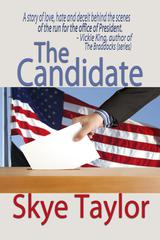 The biggest change of course in any of my writing came in my mainstream novel, THE CANDIDATE. I pitched the story to an editor from St Martin’s Press at a conference and she requested the manuscript. She loved the characters and plot, thought the dialog and settings were good, but she wanted more risk and tension. The story is about a man running for president who experiences a personal crisis in the middle of the campaign and I had chosen to tell it entirely from his POV. After much thought I realized telling it from only my protagonist’s point of view left the reader unaware of what was going on to oppose my guy. The big change I ended up with was to have 5 points of view; one of the opposing candidates for president, the campaign manager for the third opponent and two other characters with story arcs that impacted the whole. Now I felt like I was driving a five horse team, my hands full of reins and no longer sure I was in control. Until I attended a conference and a workshop where a very talented, best selling author gave me the key to my problem. A simple diagram on a whiteboard The biggest change of course in any of my writing came in my mainstream novel, THE CANDIDATE. I pitched the story to an editor from St Martin’s Press at a conference and she requested the manuscript. She loved the characters and plot, thought the dialog and settings were good, but she wanted more risk and tension. The story is about a man running for president who experiences a personal crisis in the middle of the campaign and I had chosen to tell it entirely from his POV. After much thought I realized telling it from only my protagonist’s point of view left the reader unaware of what was going on to oppose my guy. The big change I ended up with was to have 5 points of view; one of the opposing candidates for president, the campaign manager for the third opponent and two other characters with story arcs that impacted the whole. Now I felt like I was driving a five horse team, my hands full of reins and no longer sure I was in control. Until I attended a conference and a workshop where a very talented, best selling author gave me the key to my problem. A simple diagram on a whiteboard  with a graphic visual of five character arcs and a story arc and how they intersect and what happens when they do. A flashbulb went off in my head. I went home and pulled that story together pretty quickly after that. It was originally released under the title WHATEVER IT TAKES, re-released in 2016 as THE CANDIDATE. It ended the way I originally envisioned, but a lot of what happened between the day the old photograph was slipped into my candidate’s hand at a meet and greet and the final scene took several new turns I had not planned on or expected but the story was stronger and better. with a graphic visual of five character arcs and a story arc and how they intersect and what happens when they do. A flashbulb went off in my head. I went home and pulled that story together pretty quickly after that. It was originally released under the title WHATEVER IT TAKES, re-released in 2016 as THE CANDIDATE. It ended the way I originally envisioned, but a lot of what happened between the day the old photograph was slipped into my candidate’s hand at a meet and greet and the final scene took several new turns I had not planned on or expected but the story was stronger and better.
XX
 I think a writer needs to be open to ideas and revelations either from other writers, editors, brainstorming partners, beta readers or even the characters themselves. New ideas from a fresh source might be just the spark to keep a story moving, or ignite a whole new arc that adds depth and interest to the main story. Unless you are writing a formulaic genre book, a writer needs to be willing to push the envelope, see where their characters might go if allowed off the leash, and open to entirely new stuff. Even for a plotter, that outline is only a guide. It's not meant to be a straightjacket or to stifle good ideas that come during the writing process. Those unexpected deviations from the original plan are often what makes a book better, or even a blockbuster. I think a writer needs to be open to ideas and revelations either from other writers, editors, brainstorming partners, beta readers or even the characters themselves. New ideas from a fresh source might be just the spark to keep a story moving, or ignite a whole new arc that adds depth and interest to the main story. Unless you are writing a formulaic genre book, a writer needs to be willing to push the envelope, see where their characters might go if allowed off the leash, and open to entirely new stuff. Even for a plotter, that outline is only a guide. It's not meant to be a straightjacket or to stifle good ideas that come during the writing process. Those unexpected deviations from the original plan are often what makes a book better, or even a blockbuster.
XX
Want to find out what other authors have experienced along the way to THE END? Hop on over to these sites to find out.
XX
 A.J. Maguire A.J. Maguire
Connie Vines
Judith Copek
Margaret Fieland
Helena Fairfax
Dr. Bob Rich
Diane Bator
Rhobin L Courtright
Beverley Bateman
Saturday, September 21 2019
 September’s Round Robin Blog Hop asks the question: In designing your plots what do you rely on most: personal experience, imagination, or research? September’s Round Robin Blog Hop asks the question: In designing your plots what do you rely on most: personal experience, imagination, or research?
ZZ
I’d have to say all of the above. Personal experience often gives me ideas for stories. That and people watching or news screaming at us from all forms of current day media. But from there, it’s imagination. Playing the “What If” game is a personal way of brainstorming how my plots will develop. But then I have research to do and often I find out something new that triggers a whole new avenue for my plot. When possible, I visit the area I plan to set my book in and being IN the setting, so to speak gives me more ideas. So, I really use personal experience, imagination and research in developing my plots.
ZZ
 They say that truth is stranger than fiction and that is often very true. When we were clearing my dad’s house to put it on the market, my sister came across a strange package with military markings and the word “ordinance” on it. That alone might give someone a nifty idea for a plot. But what followed is definitely going to show up in a story of mine one day. Being a responsible citizen, my sister didn’t think it appropriate to just toss it into the dumpster with all the other junk we were getting rid of so she put it in the car and drove to the local police station to ask what she should do with it. The cops got their panties in a bunch, needless to say. They wouldn’t let her return to her car, touch or unload the stuff or even retrieve her dog who was happily grinning at the police with tongue lolling from the back seat. They did get the dog and bring her into the station to sit with my sister, but then everyone had to wait for the bomb squad to They say that truth is stranger than fiction and that is often very true. When we were clearing my dad’s house to put it on the market, my sister came across a strange package with military markings and the word “ordinance” on it. That alone might give someone a nifty idea for a plot. But what followed is definitely going to show up in a story of mine one day. Being a responsible citizen, my sister didn’t think it appropriate to just toss it into the dumpster with all the other junk we were getting rid of so she put it in the car and drove to the local police station to ask what she should do with it. The cops got their panties in a bunch, needless to say. They wouldn’t let her return to her car, touch or unload the stuff or even retrieve her dog who was happily grinning at the police with tongue lolling from the back seat. They did get the dog and bring her into the station to sit with my sister, but then everyone had to wait for the bomb squad to  come inspect the “ordinance.” My brother had been in the Army for 15 years and we suspected it might have been something he left behind that my dad just moved along with his other stuff, but who knew and my dad couldn’t remember and my brother had passed away so no one to ask. Eventually the bomb guys deemed it non-threatening and took care of it. What a fun twist for a plot, was the first thing that came to my mind when she told me about her day. come inspect the “ordinance.” My brother had been in the Army for 15 years and we suspected it might have been something he left behind that my dad just moved along with his other stuff, but who knew and my dad couldn’t remember and my brother had passed away so no one to ask. Eventually the bomb guys deemed it non-threatening and took care of it. What a fun twist for a plot, was the first thing that came to my mind when she told me about her day.  At a lunch date with writers the other day one of the gals told a story about having frozen dough in the cooler of her sailboat, thinking it would be okay sitting on the block of ice, only to open the cooler and discover the entire cooler filled with ever expanding dough. At my age, there are plenty of ordinary experiences I am far too familiar with – giving birth, burying a husband, a mom with Alzheimer’s, parenting from toddler to teen, breaking down on the highway, traveling, airport searches, customs, and dozens of other things that can all be used to expand or add to a plot. And my not so ordinary experiences, like skydiving, swimming with whales, joining the Peace Corps, and being chased by a pig. So, yes, personal experience and the experiences of those we know as well as those in the news often form the nucleus of a plot, or push another plot along. At a lunch date with writers the other day one of the gals told a story about having frozen dough in the cooler of her sailboat, thinking it would be okay sitting on the block of ice, only to open the cooler and discover the entire cooler filled with ever expanding dough. At my age, there are plenty of ordinary experiences I am far too familiar with – giving birth, burying a husband, a mom with Alzheimer’s, parenting from toddler to teen, breaking down on the highway, traveling, airport searches, customs, and dozens of other things that can all be used to expand or add to a plot. And my not so ordinary experiences, like skydiving, swimming with whales, joining the Peace Corps, and being chased by a pig. So, yes, personal experience and the experiences of those we know as well as those in the news often form the nucleus of a plot, or push another plot along.
  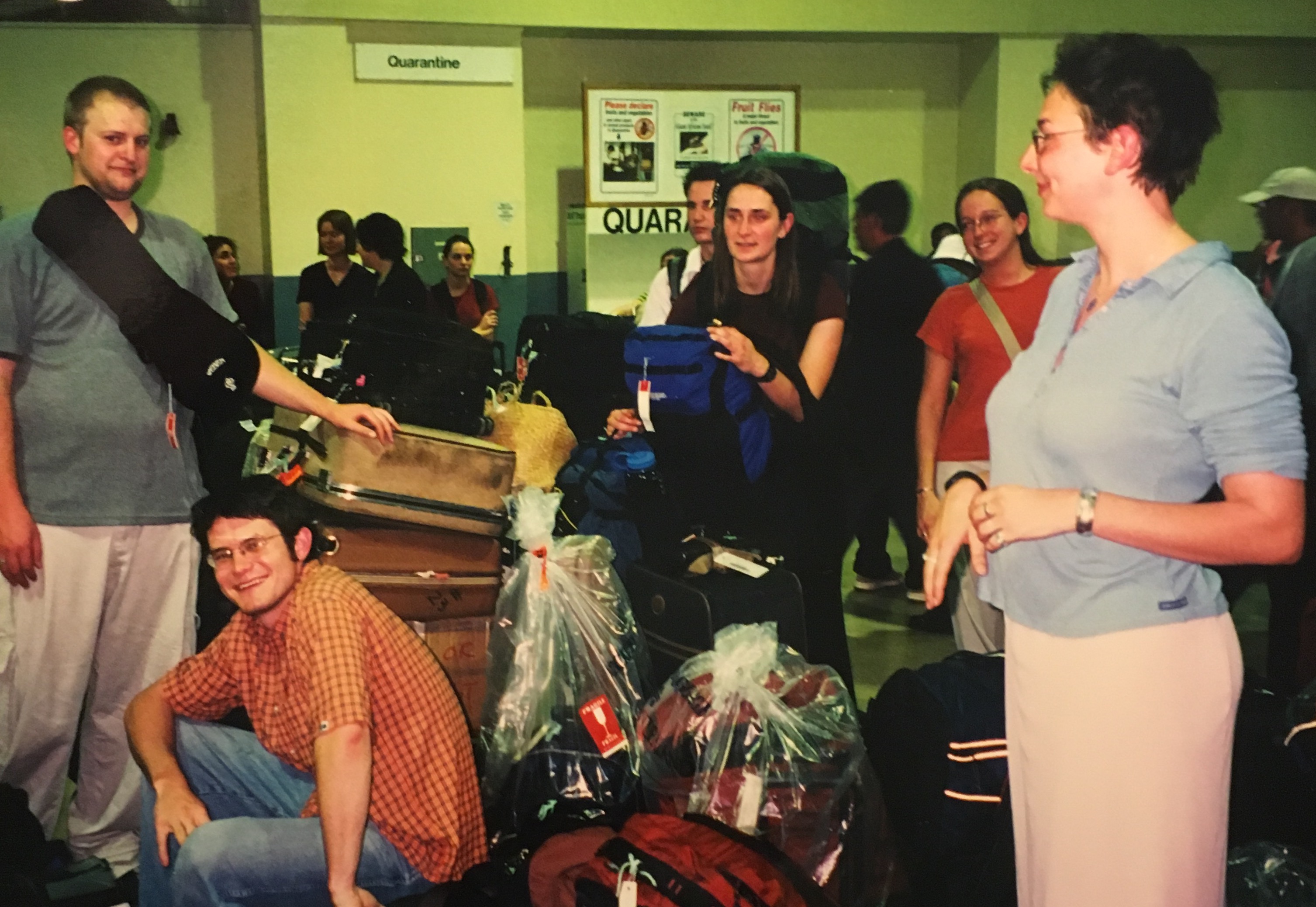  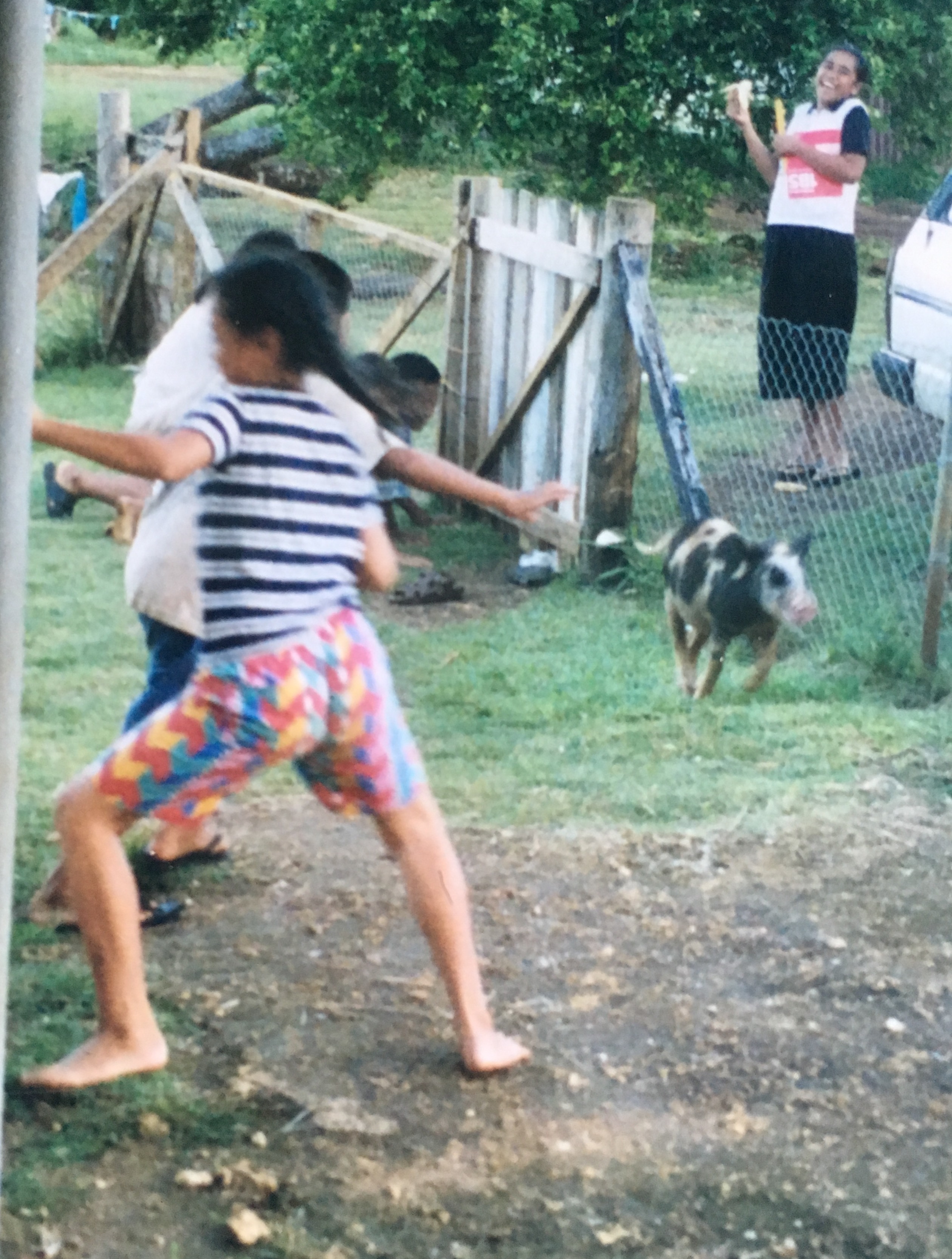
Especially since I am not a plotter, but what the writing community calls a pantser, I might get my initial idea from something I heard, dreamed, experienced or saw in the news, but then I spend a lot of time creating characters, their backstories, their current lives, foibles and loves – then I plop them into the inciting incident and see where they go. But we all eventually hit the ‘sagging middle’ and that’s when I start with the what if questions. What if this happened to my heroine? Or what if the hero did that? Or what if my   villain had this in mind? The answers to each of these questions lead to more ideas and more questions. I am also fortunate to be part of a group of authors – we call ourselves the Sandy Scribblers (some of us live on the beach) – and we meet once a month to brainstorm all our current works in progress. We are such a varied lot, several genres and both male and female. I tend to be a Pollyanna and don’t want to hurt my people, but I call another member of our group my personal Mayhem because she comes up with the most diabolical things I can do to my characters to get them in hot water, turn up the heat and start roasting. This group is also great at poking holes in weak places in my plots and making suggestions on how to fix them. villain had this in mind? The answers to each of these questions lead to more ideas and more questions. I am also fortunate to be part of a group of authors – we call ourselves the Sandy Scribblers (some of us live on the beach) – and we meet once a month to brainstorm all our current works in progress. We are such a varied lot, several genres and both male and female. I tend to be a Pollyanna and don’t want to hurt my people, but I call another member of our group my personal Mayhem because she comes up with the most diabolical things I can do to my characters to get them in hot water, turn up the heat and start roasting. This group is also great at poking holes in weak places in my plots and making suggestions on how to fix them.
ZZ
 Then, there’s the research. As I mentioned, I like to visit the physical places I set my stories. My one (currently) historical is set partly in Boston and Salem Mass and I spent a lot of time in both cities walking through the historical places, getting a feel for what it might have looked like in 1775. Although not yet published I have a book that takes place at Valley Forge and I’ve been there as well as downtown Philly for research. For my romance series, set in a fictional seaside town in North Carolina, I spent several days in that area, checking the tides, the airport, the neighborhoods, the streets and riverside of Wilmington and more. I Then, there’s the research. As I mentioned, I like to visit the physical places I set my stories. My one (currently) historical is set partly in Boston and Salem Mass and I spent a lot of time in both cities walking through the historical places, getting a feel for what it might have looked like in 1775. Although not yet published I have a book that takes place at Valley Forge and I’ve been there as well as downtown Philly for research. For my romance series, set in a fictional seaside town in North Carolina, I spent several days in that area, checking the tides, the airport, the neighborhoods, the streets and riverside of Wilmington and more. I  talked to local folk out trimming their lawns, manning the information booth at the airport and sitting on a bench beside the river. All three of those individuals gave me ideas that found their way into my plots. As I’ve mentioned before, a trip out to explore an island off the coast of Maine triggered an entire plot for a historical time travel novel. Sometimes just being there gives you ideas. Sometimes seeing things you didn’t know were there provokes a whole new line of thought. Sometimes sitting surrounded by the ambiance your story takes place helps you ‘feel’ new or different possibilities. talked to local folk out trimming their lawns, manning the information booth at the airport and sitting on a bench beside the river. All three of those individuals gave me ideas that found their way into my plots. As I’ve mentioned before, a trip out to explore an island off the coast of Maine triggered an entire plot for a historical time travel novel. Sometimes just being there gives you ideas. Sometimes seeing things you didn’t know were there provokes a whole new line of thought. Sometimes sitting surrounded by the ambiance your story takes place helps you ‘feel’ new or different possibilities.
ZZ
So, like I said, personal experience, imagination and research all influence the creation of my plots. Why not visit these other writers and see how they come up with their stories:
ZZ
 Margaret Fieland Margaret Fieland
Victoria Chatham
Beverley Bateman
Dr. Bob Rich
Diane Bator
Connie Vines
Anne Stenhouse
Rhobin L Courtright
Saturday, August 24 2019
This month our Round Robin Blog Hop invites us to share an excerpt from something we've written about travel or vacation.
xx
 One summer a few years ago, intrigued by the history I’d read about a tiny island off the coast of Maine, I decided to go out to explore the place. I could see the island from my home on the mainland so it was just a day sail, but still an adventure. Once upon a time, on this scrap of land a British captain had come ashore to steal sheep before moving on to harass other coastal communities in an effort to keep colonists from joining the likes of Sam Adams and John Hancock. Even before that, Pilgrims, starving in Plymouth Massachusetts had traveled north to beg for food at communities my history books had never even mentioned, but had apparently existed long before the Pilgrims arrived on the Mayflower. This island called Damariscove had once been a thriving place filled with merchants, seaman and patriots and now uninhabited by year-round residents was a lure I couldn’t resist. One summer a few years ago, intrigued by the history I’d read about a tiny island off the coast of Maine, I decided to go out to explore the place. I could see the island from my home on the mainland so it was just a day sail, but still an adventure. Once upon a time, on this scrap of land a British captain had come ashore to steal sheep before moving on to harass other coastal communities in an effort to keep colonists from joining the likes of Sam Adams and John Hancock. Even before that, Pilgrims, starving in Plymouth Massachusetts had traveled north to beg for food at communities my history books had never even mentioned, but had apparently existed long before the Pilgrims arrived on the Mayflower. This island called Damariscove had once been a thriving place filled with merchants, seaman and patriots and now uninhabited by year-round residents was a lure I couldn’t resist.
xx
 My daughter and my dad and I sailed out there one beautiful sunny Maine summer day and wandered among the remnants of that long-ago island community and as I stood on the top of a large chunk of granite, part of an old stone foundation, it wiggled alarmingly. I jumped away, not eager to fall into the grass and daisy-lined abyss. But a writer’s mind, always wandering down unexpected alleys, finds stories in the unlikeliest of places. And so, on our sail home, the question that popped into my head was: “What if I had fallen into that hole? What if I’d hit my head and been knocked unconscious? And what if I’d woken up in a different century?” That’s how my novel, Iain’s Plaid was born. A day-trip to explore a place filled with history turned into a time-travel adventure back to 1775, the year the idea of independence was born in America. My daughter and my dad and I sailed out there one beautiful sunny Maine summer day and wandered among the remnants of that long-ago island community and as I stood on the top of a large chunk of granite, part of an old stone foundation, it wiggled alarmingly. I jumped away, not eager to fall into the grass and daisy-lined abyss. But a writer’s mind, always wandering down unexpected alleys, finds stories in the unlikeliest of places. And so, on our sail home, the question that popped into my head was: “What if I had fallen into that hole? What if I’d hit my head and been knocked unconscious? And what if I’d woken up in a different century?” That’s how my novel, Iain’s Plaid was born. A day-trip to explore a place filled with history turned into a time-travel adventure back to 1775, the year the idea of independence was born in America.
xx
An excerpt from Iain’s Plaid:
xx
 Dani Amico sucked in a lungful of salty, sun-filled air and headed up the beach to explore this island with so much history that she’d just had to sail out here and see it for herself. Scrambling through a narrow opening in the beach roses, she gazed out over the island; nearly all of it visible from her vantage point. To her right, a small pond nestled into the narrowest part of the island, and a long stretch of land tapered off to the north, covered with scrub growth and wildflowers. To the south lay the harbor. She turned and headed in that direction. Dani Amico sucked in a lungful of salty, sun-filled air and headed up the beach to explore this island with so much history that she’d just had to sail out here and see it for herself. Scrambling through a narrow opening in the beach roses, she gazed out over the island; nearly all of it visible from her vantage point. To her right, a small pond nestled into the narrowest part of the island, and a long stretch of land tapered off to the north, covered with scrub growth and wildflowers. To the south lay the harbor. She turned and headed in that direction.
Clusters of old cellar holes dotted the island, most of them on the high ground above the harbor. The path disappeared as she scrambled over a ledge of granite and reappeared on the other side. A small building stood in the shelter of the next outcropping of rock, the boards long since stripped of any paint they might once have had. A sign hung on the door. Dani climbed the two stairs and read:
Welcome to the Damariscove Museum. Please, come in. 
Doing just that, she chuckled. This had to be smallest museum in history. Someone had carefully arranged an assortment of artifacts on a waist-high shelf along two walls with handwritten explanations beside each one. She made her way along the exhibit. There was a brass button the unknown curator claimed had once belonged to a British soldier. Hand-blown glass fishing floats. The head of a farmer’s pick, its wooden handle long since rotted away. A few Indian arrowheads. Pieces of a handgun that dated from the 1700s. Another shelf held a collection of shells and colored sea-glass.
Suddenly an eerie feeling curled its way down her spine and made the hair on her neck stand up. Dani hurried out of the small space that now felt slightly claustrophobic.
Back out in the sunshine, the feeling left her.
That was weird!
If that headless man and his dog were to appear right about now, she might believe in ghosts after all. But the island appeared just as deserted as before.
She climbed the rest of the way to the ridge where the path reappeared again and wound away from the harbor and up toward a meadow filled with lupine. A vast stretch of purples, pinks, and blues. A field of lupine in bloom was one of the prettiest signs of the coming summer in Maine.
To Dani’s right, the outline of a foundation stretched away in two directions. It was larger than most. Maybe it had once been a barn. She stepped up onto the large square of granite that made up the cornerstone and gazed back down at the brilliant-blue stretch of water that was Damariscove Harbor.
Another shiver ran down Dani’s spine. The hair on the nape of her neck prickled. She glanced toward the little museum in case there was unexpected company, but the path was just as abandoned as the foundation she was standing on. No one is on this island . . . unless ghosts really do exist?
“Idiot,” she chided herself. “Ghosts aren’t real.” But her skin still tingled, and the uneasy chill lingered in spite of the warm sunshine.
Dani hugged her arms across her chest and checked the skyline above the invisible stony curve of beach where she’d left her boat. The top of the aluminum mast thrust skyward above the wild tangle of beach roses with its jaunty red windsock snapping in the stiffening breeze.
Maybe I shouldn’t have sailed out here alone.
Except it had been solitude she’d been seeking. Even though the phone calls urging her to accept the teaching position had ceased and Clayton’s proposal forever forestalled, she’d still needed time by herself to think about what she did want before taking a plunge that would change her life forever.
She slid down to sit on the massive old corner-stone, dangling her legs over the edge. Clayton had been a comfortable companion and an okay lover, but she hadn’t been in love with him. Getting married was supposed to be exciting, and her gut had been telling her Clayton was not the one. The immense feeling of relief that filled her once she’d told him the truth proved it.
She loved history and teaching, but accepting the job Clayton had engineered for her had seemed just another tie to him. Maybe she’d just been refusing to admit she was a grownup, but a few months away exploring new places would give her the space to do it.
Maybe next she’d try snorkeling over the Great Barrier Reef in Australia. Although a visit to Thailand to see the temples and ruins that Theresa thought were exotic would be cool to see. And she’d love seeing the place where so much history had happened. Then again, she could go to Stonehenge. Or maybe even the battlefield at Culloden, the battle that had precipitated the emigration of so many Scots to the colonies. Scots like the captain she’d been reading about.
She studied the landscape again, imagining this tiny scrap of land off the coast of Maine as it might have been more than two hundred years ago. When Patriot sea captains had swaggered down to the harbor to set out in their swift little sloops to harass the British Navy, and fishermen had salted their catches of cod along the shell-lined beach while Native Americans glided in and out of this harbor in their canoes trading furs for guns.
What might the village have looked like, huddled around the edge of the harbor? Some of the buildings that existed in Boston were that old, but the city had grown up around them, dwarfing them in importance. Here, the buildings had crumbled away to nothing, leaving only the abandoned cellar holes to show they’d ever existed at all.
If those old cellars could talk, what stories might they tell? The one she was sitting atop was bigger than most. A wide set of granite steps to her right must have led up to the main floor. Perhaps it had been a meeting hall? Or a big barn?
Abruptly and inexplicably chilled with her hair standing on end, Dani snatched her backpack off the ground and pushed herself to her feet. The lichen-covered chunk of old granite wobbled, then toppled into the hole. She yelped in surprise and tried to scramble back away from the abyss, but her foot slipped.
Tumbling downward in a rattling shower of stones and dirt, she landed, gasping for breath, in a shocked heap just inches from the gaping cavern beneath the old stairs. Her backpack thudded down on top of her.
Then the world went black.
***
Iain MacKail strode into the ink-dark alley behind his warehouse with an unaccustomed curse on his lips and a hefty belaying pin clutched in his left hand.
“Ye willna get away with it this time, ye bludy spy!”
Set deep into the thick fieldstone foundation, a stout oak door rattled insistently against the iron bolt that held it shut. Iain tightened his grip on the belaying pin, gritted his teeth, and reached out to release the door.
A dark figure exploded through the doorway and hurtled headlong into the alley with a gasp. Iain grabbed the intruder by the collar and thrust him against the wall.
Shocked by his captive’s diminutive size, Iain just barely managed to abort the blow meant to stun a much larger adversary. The scamp wriggling frantically within Iain’s grip couldn’t have been more than twelve. Thirteen at most. Maybe he’d been mistaken. Maybe this was just a matter of thievery and not another of the damnable prying turncoats spying for Malcolm.
“Put me down, you bastard!” The lad clawed ineffectually at the shirt collar pulled tight around his throat by Iain’s iron grip.
In spite of the furious stream of vulgarity, Iain heard fear in the breathless young voice. He lowered the lad to the ground with a mixture of suspicion and annoyance. What, in heaven’s name, was he to do with this unexpected interruption? With a hold full of contraband destined for Boston, he couldn’t take chances on being caught. The citizens of Boston were in desperate need, else he wouldn’t have gotten involved in the first place. But he was involved. And if this scamp was a spy, he was in trouble.
Curst chance! He needed to be aboard his ship in the next half hour, preparing to weigh anchor when the tide turned. What he didn’t need was a youthful, would-be thief to cope with, even if the intruder was not working for the British customs agent. Iain touched his breast pocket, reassuring himself that the incriminating list of goods and donors he’d shoved into it hadn’t fallen out in his rush to catch the spy. His irritation grew.
He kept his tone deceptively mild and asked, “Have ye naught to say for yerself besides blaspheming?”
“I . . . I don’t have to say anything. I haven’t done anything wrong. And you’re hurting me.” The lad wriggled in another attempt to free himself. “God damn you.”
“Aye, I expect He already has.” Iain pursed his lips ruefully.
“Let go of me!” The lad squirmed harder.
“If I do, will ye promise ye willna be scarpering off?”
The lad stuttered out something that could have been a denial. Iain dropped his hand and thrust the belaying pin into the waistband of his breeches. “Come along, then. Ye have some explaining to do.” He gave the lad a shove toward the mouth of the alley.
“Why should I go anywhere with you?” The youthful voice held a mutinous challenge.
“Because I didna give ye a choice.”
Iain prodded his reluctant prisoner up the wide granite steps and through the door. He pointed to an armless, straight-backed chair. After a brief hesitation, the lad dropped into it.
Clad in a hunting shirt several times too large for him and a pair of oddly fashioned breeches, the lad returned Iain’s probing gaze and shivered. His emerald-green eyes seemed too big for the delicate, fine-boned face, and at the moment, they held an unsettling blend of outrage, bewilderment, and fear. Iain was torn.
Wishing he could stay out of the volatile political wrangling going on in places like Boston and Virginia, Iain had been faced with a difficult choice. He felt no loyalty to a king whose father and uncle had visited devastating ruin on the land of his birth and filled his childhood with grief. But neither could he foresee any happy outcome in defying so powerful a monarchy again in spite of the persuasive arguments of men like Samuel Adams and John Hancock.
Iain had abandoned Scotland for the colonies looking for a better life. And he’d prospered. The new world was filled with opportunities for men who were willing to work for them.
But now history seemed to be repeating itself. Just like the Scots after their defeat at Culloden, the citizens of Boston were being crushed by a vengeful Parliament, and Iain was forced to take sides. Forced to wonder if innocent-seeming young boys were being paid to spy on men like himself who were just trying to help their beleaguered neighbors.
“Now then,” Iain began, carefully curbing the impatience he felt, “suppose ye begin by telling me who you are.”

Hop on over to check out other adventures, travel and vacation stories by these other fine authors:
XX
Diane Bator http://dbator.blogspot.ca/
Marie Laval http://marielaval.blogspot.co.uk/
Victoria Chatham http://www.victoriachatham.com
Judith Copek http://lynx-sis.blogspot.com/
Anne Stenhouse http://annestenhousenovelist.wordpress.com/
Helena Fairfax http://www.helenafairfax.com/blog
A.J. Maguire http://ajmaguire.wordpress.com/
Beverley Bateman http://beverleybateman.blogspot.ca/
Dr. Bob Rich https://wp.me/p3Xihq-1GK
Connie Vines http://mizging.blogspot.com/
Rhobin L Courtright http://www.rhobincourtright.com
Saturday, July 20 2019
July’s Round Robin Blog asks the question: What book (or type of book) are you currently working on? Do you have ideas for future books?
CC
 All of life is an adventure – at least that’s my motto – and my writing is more of the same. While conventional wisdom is to stick with your genre because you don’t want to disappoint your readers, I am always up and eager for a new challenge. So, while I’ve been published in Mainstream, Time Travel, and Romance (both contemporary and historical) I was eager for something different and decided to try writing a mystery. WOW! What a whole new learning curve this has been. All of life is an adventure – at least that’s my motto – and my writing is more of the same. While conventional wisdom is to stick with your genre because you don’t want to disappoint your readers, I am always up and eager for a new challenge. So, while I’ve been published in Mainstream, Time Travel, and Romance (both contemporary and historical) I was eager for something different and decided to try writing a mystery. WOW! What a whole new learning curve this has been.
CC
When I decided my protagonist would be a deputy detective with a local sheriff’s department, I applied for a ride-along with a deputy from St. John’s County. It was a fascinating experience that just touched the tip of the iceberg. So my next move was to register for the Citizen’s Law Enforcement Academy. I learned so much  about law enforcement, the men and women who put their lives on the line to protect us and the assets my county has at its disposal. I also came back with tons of great ideas for future books and a whole new appreciation for these men and women. Let’s face it, they never see even the best of us on our best days, but rather the best of us on our worst days and the worst of us on far too many of their days. And yet, they maintain their patient professionalism in the face of controversy, antipathy, outright aggression, stupidity, stubbornness and the most appalling circumstances. Made me glad I’d chosen this new writing challenge because of the glimpse my research gave me into the lives and work of these wonderful people. about law enforcement, the men and women who put their lives on the line to protect us and the assets my county has at its disposal. I also came back with tons of great ideas for future books and a whole new appreciation for these men and women. Let’s face it, they never see even the best of us on our best days, but rather the best of us on our worst days and the worst of us on far too many of their days. And yet, they maintain their patient professionalism in the face of controversy, antipathy, outright aggression, stupidity, stubbornness and the most appalling circumstances. Made me glad I’d chosen this new writing challenge because of the glimpse my research gave me into the lives and work of these wonderful people.
CC
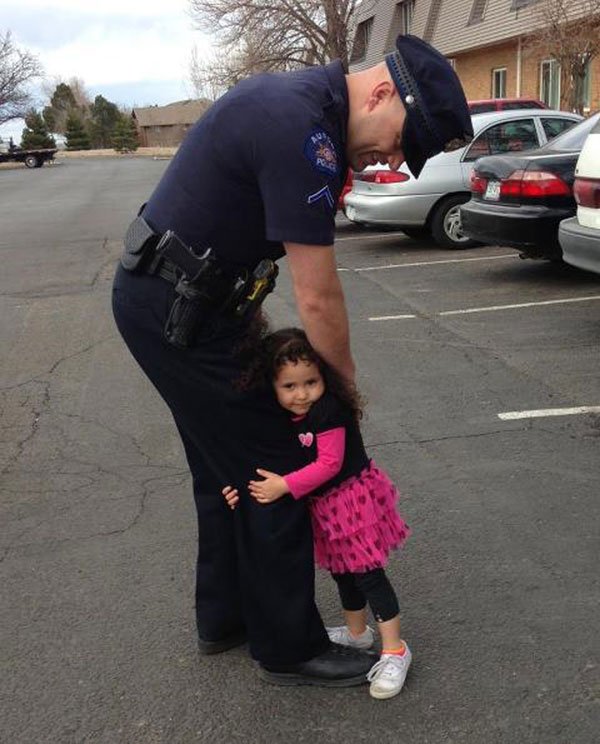 So, back to my current project. Jessalyn “Jesse” Quinn grew up admiring her dad who was an officer killed in the line of duty when she was twelve. But she didn’t pursue a career in law enforcement as she would have liked. Instead, she followed her mother’s urging, married and had a family. It wasn’t until she found her husband of 12 years had been cheating on her pretty much the entire time they’d been together and realized living the life someone else ordained for her had not brought happiness, success, or any sense she was making a difference in the world that she signed up for the police academy and became a detective. So, back to my current project. Jessalyn “Jesse” Quinn grew up admiring her dad who was an officer killed in the line of duty when she was twelve. But she didn’t pursue a career in law enforcement as she would have liked. Instead, she followed her mother’s urging, married and had a family. It wasn’t until she found her husband of 12 years had been cheating on her pretty much the entire time they’d been together and realized living the life someone else ordained for her had not brought happiness, success, or any sense she was making a difference in the world that she signed up for the police academy and became a detective.
CC
 When we first meet her, she has been on the force long enough to achieve detective status and has been sent to investigate the murder of a wife of an old friend, a man she had a brief relationship with after her marriage fell apart. Torn by old loyalties and guilt and the conviction that this man did not kill his wife, she is pitted against an angry father ready to hang his dead daughter’s husband, political pressures mounting as election day rolls around and the sheriff’s major supporter is that woman’s angry father, and a conspiracy that appears to go back at least six years. When we first meet her, she has been on the force long enough to achieve detective status and has been sent to investigate the murder of a wife of an old friend, a man she had a brief relationship with after her marriage fell apart. Torn by old loyalties and guilt and the conviction that this man did not kill his wife, she is pitted against an angry father ready to hang his dead daughter’s husband, political pressures mounting as election day rolls around and the sheriff’s major supporter is that woman’s angry father, and a conspiracy that appears to go back at least six years.
CC
When a second murder adds to the tangled web of deceit and hidden agendas, Jesse and her partner Jake get little sleep as they race to solve the murder before more bodies pile up.
CC
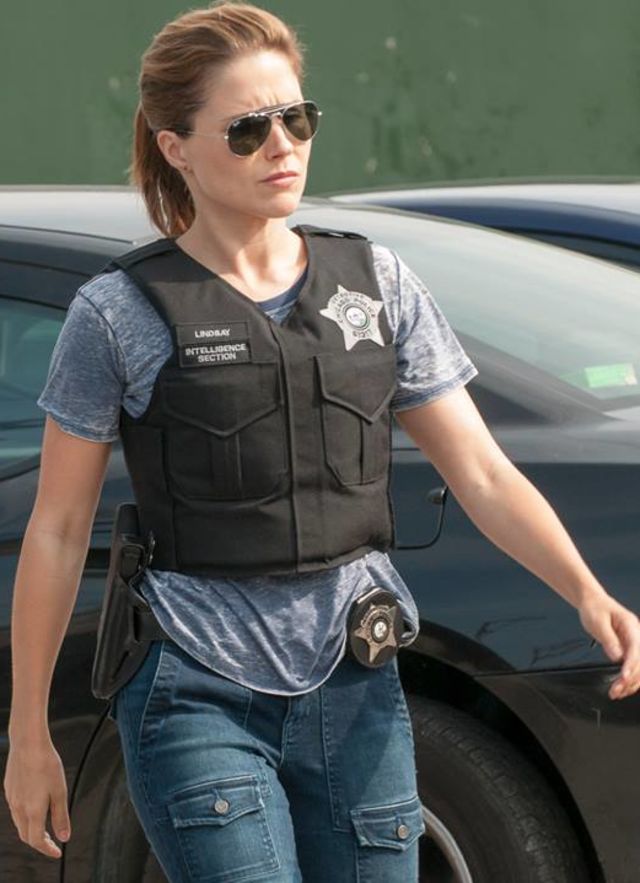 But Jesse is also a mom with a teen-age son who wholeheartedly supports his mother’s new career, a thirteen going on twenty-one year old daughter who thinks her dad’s new much younger girlfriend is way cooler than Jesse, and her own mother thinks nothing her daughter does is ladylike or acceptable. And, because love makes the world go around, I’ve created Seth Cameron (related to the Camerons of Tide’s Way for my readers who love that family already.) But Jesse is also a mom with a teen-age son who wholeheartedly supports his mother’s new career, a thirteen going on twenty-one year old daughter who thinks her dad’s new much younger girlfriend is way cooler than Jesse, and her own mother thinks nothing her daughter does is ladylike or acceptable. And, because love makes the world go around, I’ve created Seth Cameron (related to the Camerons of Tide’s Way for my readers who love that family already.)  Seth started out as a tutor for Jesse’s son when his anger over the changes in his life threatened to keep him back a year in school, but he took a shine to Jesse and is doing his best to convince her they might have something good going, if she could learn to trust again. Seth started out as a tutor for Jesse’s son when his anger over the changes in his life threatened to keep him back a year in school, but he took a shine to Jesse and is doing his best to convince her they might have something good going, if she could learn to trust again.
CC
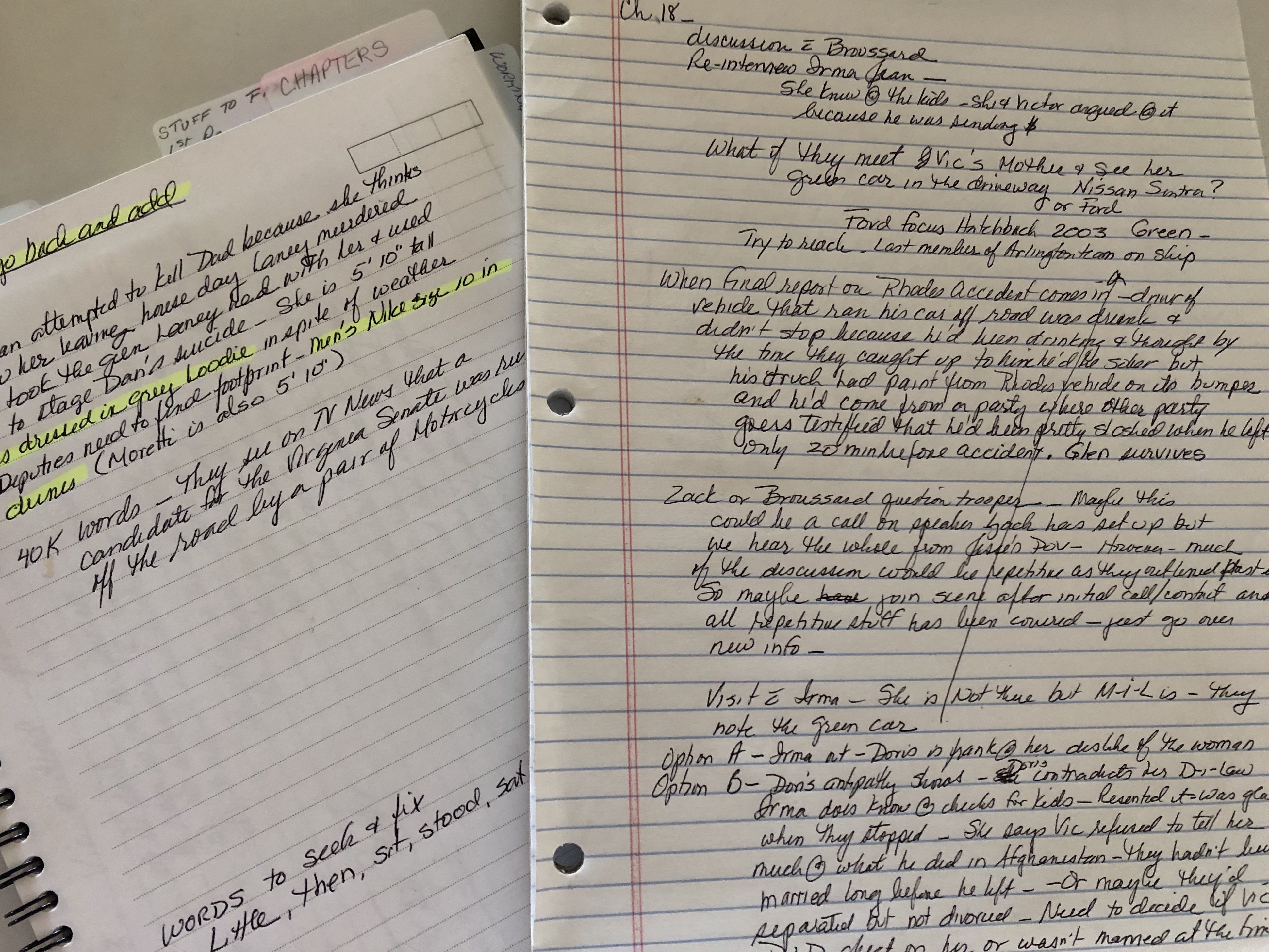 I am hoping Bullseye will just be the first in a series, but learning to write a mystery is a very different adventure. I am what the writing world calls a “pantser.” I create great characters, put them in jeopardy and let them take me with them as they find their way out. But a mystery poses a problem with this method. I need to know “who dun it” before I begin. I still balk at outlining and plotting, but with the advice of a friend have learned to jot down thoughts, ideas and possibilities for the next chapter or three and then write – jot more notes and write again. And so far, it’s working. Look for Bullseye in December. I am hoping Bullseye will just be the first in a series, but learning to write a mystery is a very different adventure. I am what the writing world calls a “pantser.” I create great characters, put them in jeopardy and let them take me with them as they find their way out. But a mystery poses a problem with this method. I need to know “who dun it” before I begin. I still balk at outlining and plotting, but with the advice of a friend have learned to jot down thoughts, ideas and possibilities for the next chapter or three and then write – jot more notes and write again. And so far, it’s working. Look for Bullseye in December.
CC
Stop on over to see what these other great authors are working on:
CC
 Marci Baun Marci Baun
Dr. Bob Rich
Beverley Bateman
Connie Vines
Helena Fairfax
A.J. Maguire
Victoria Chatham
Judith Copek
Fiona McGier
Rhobin L Courtright
|